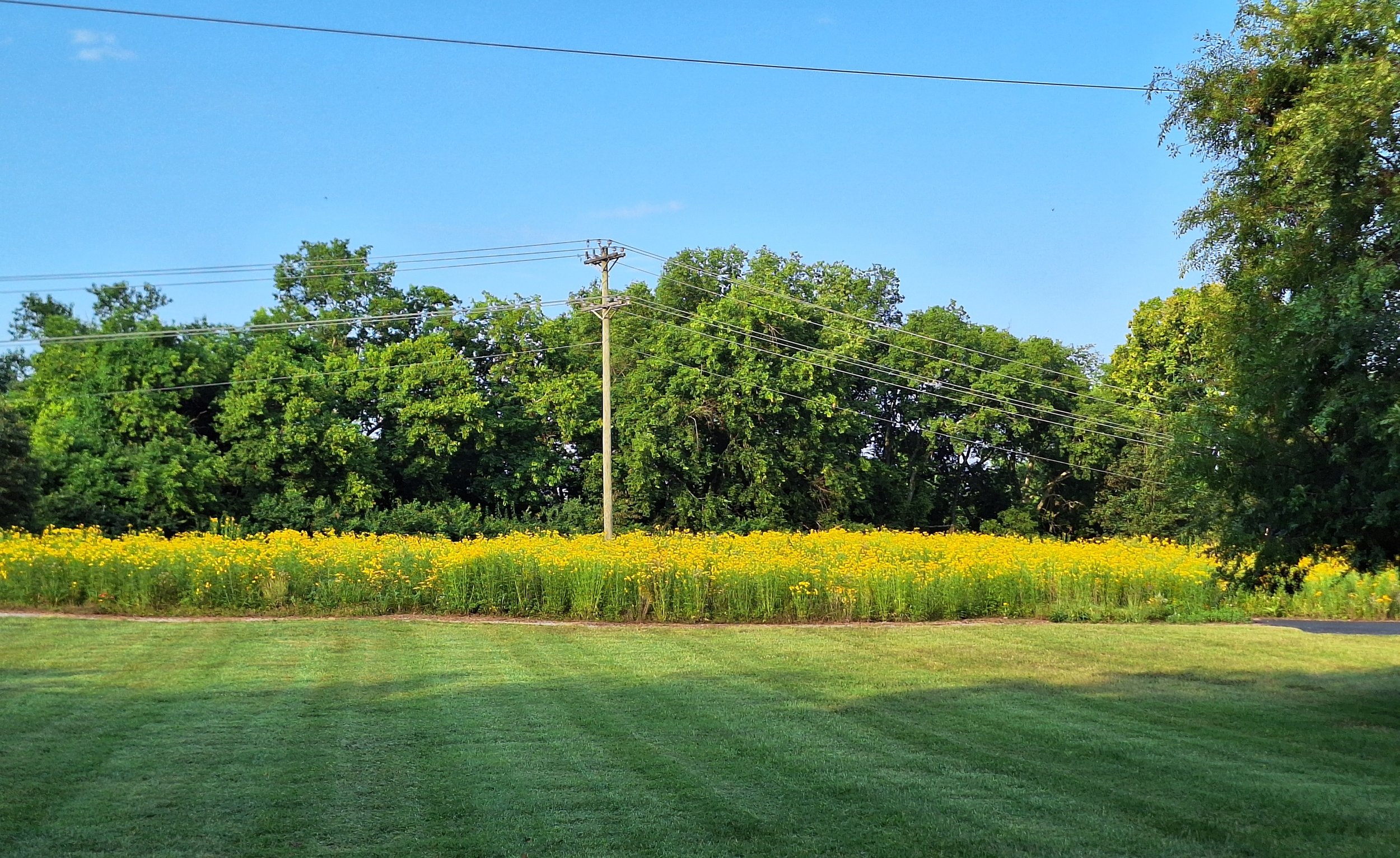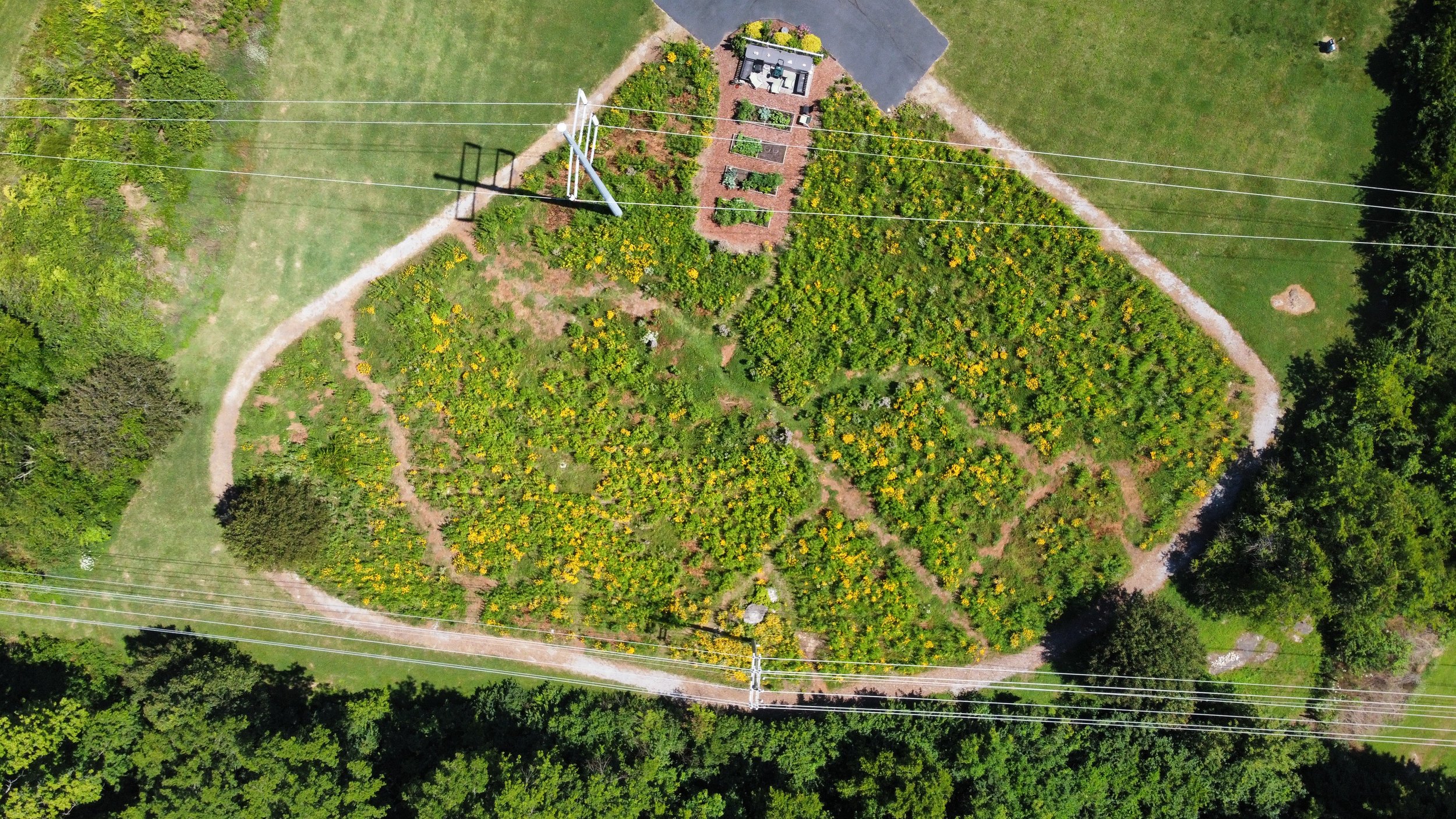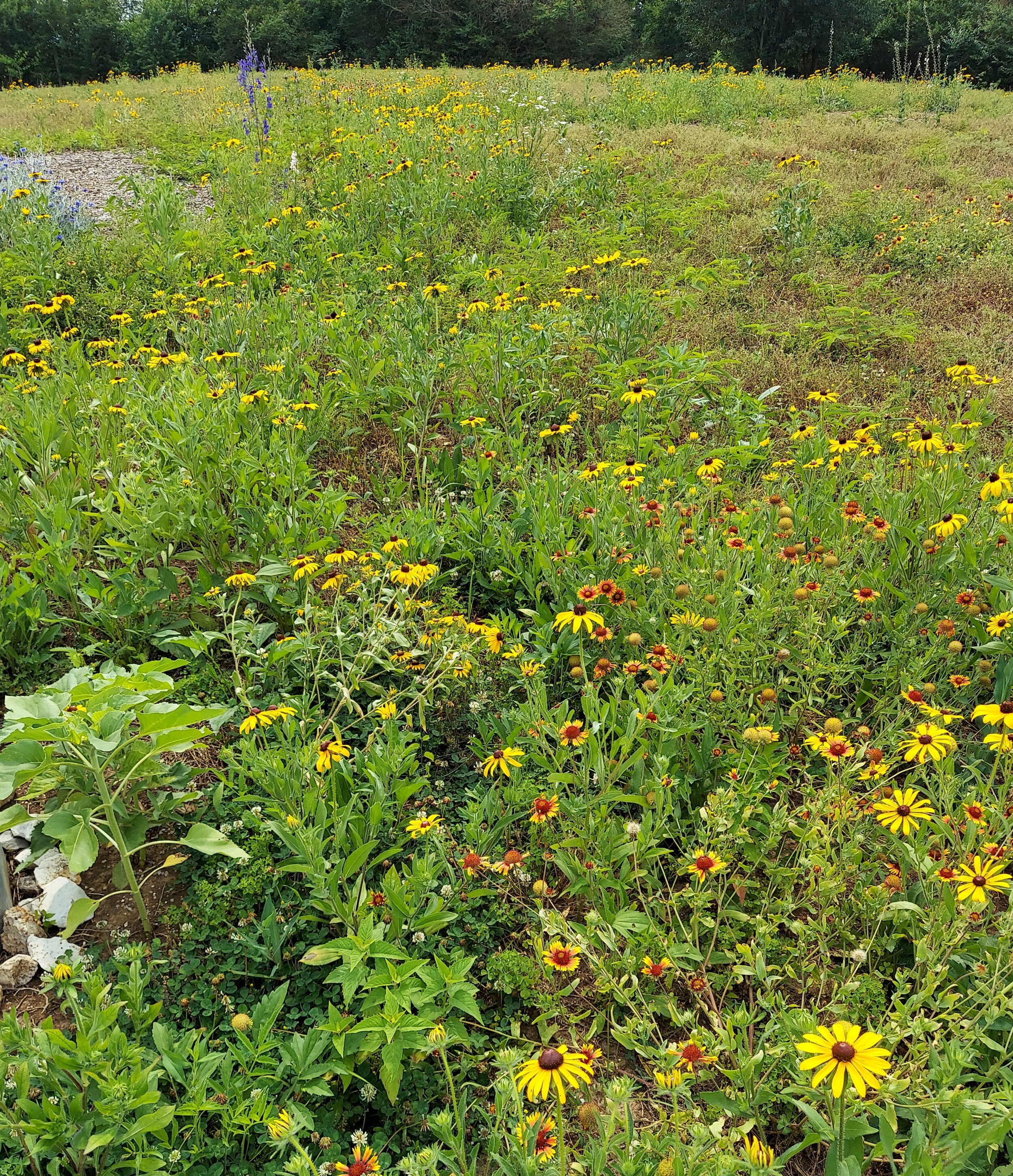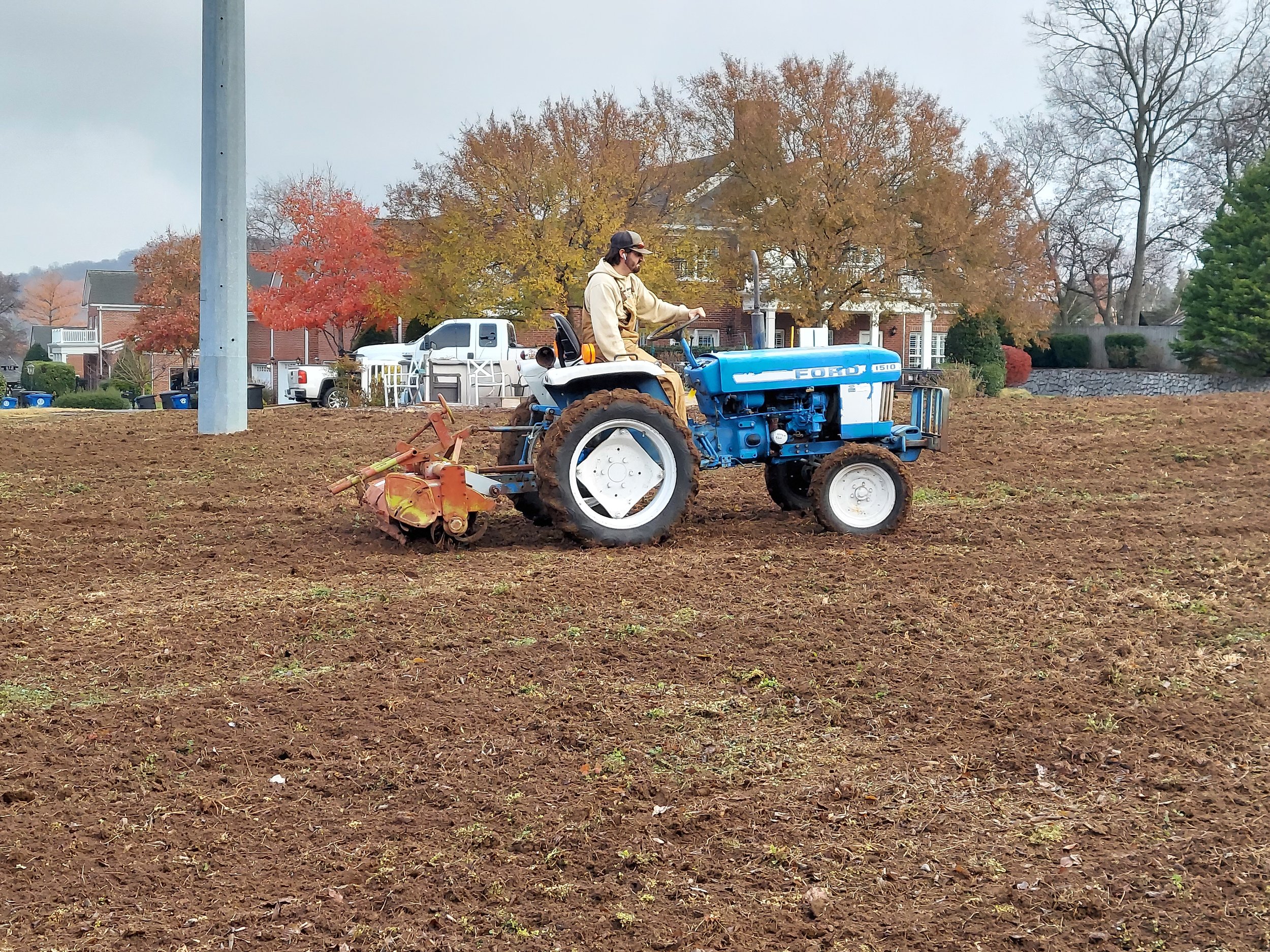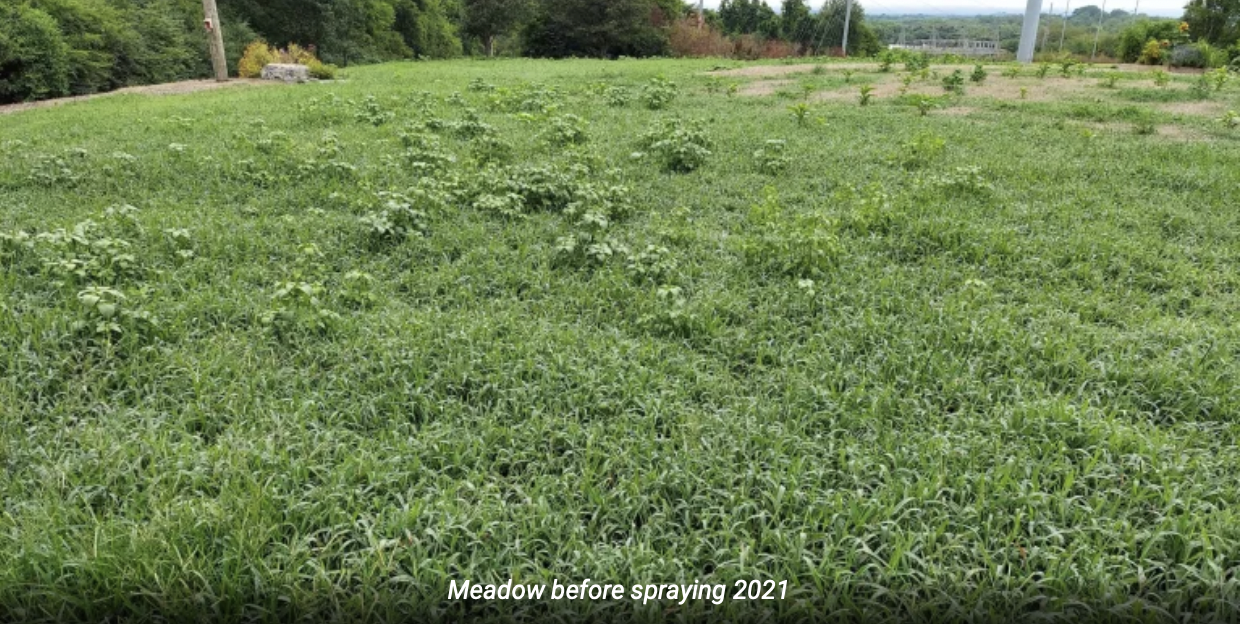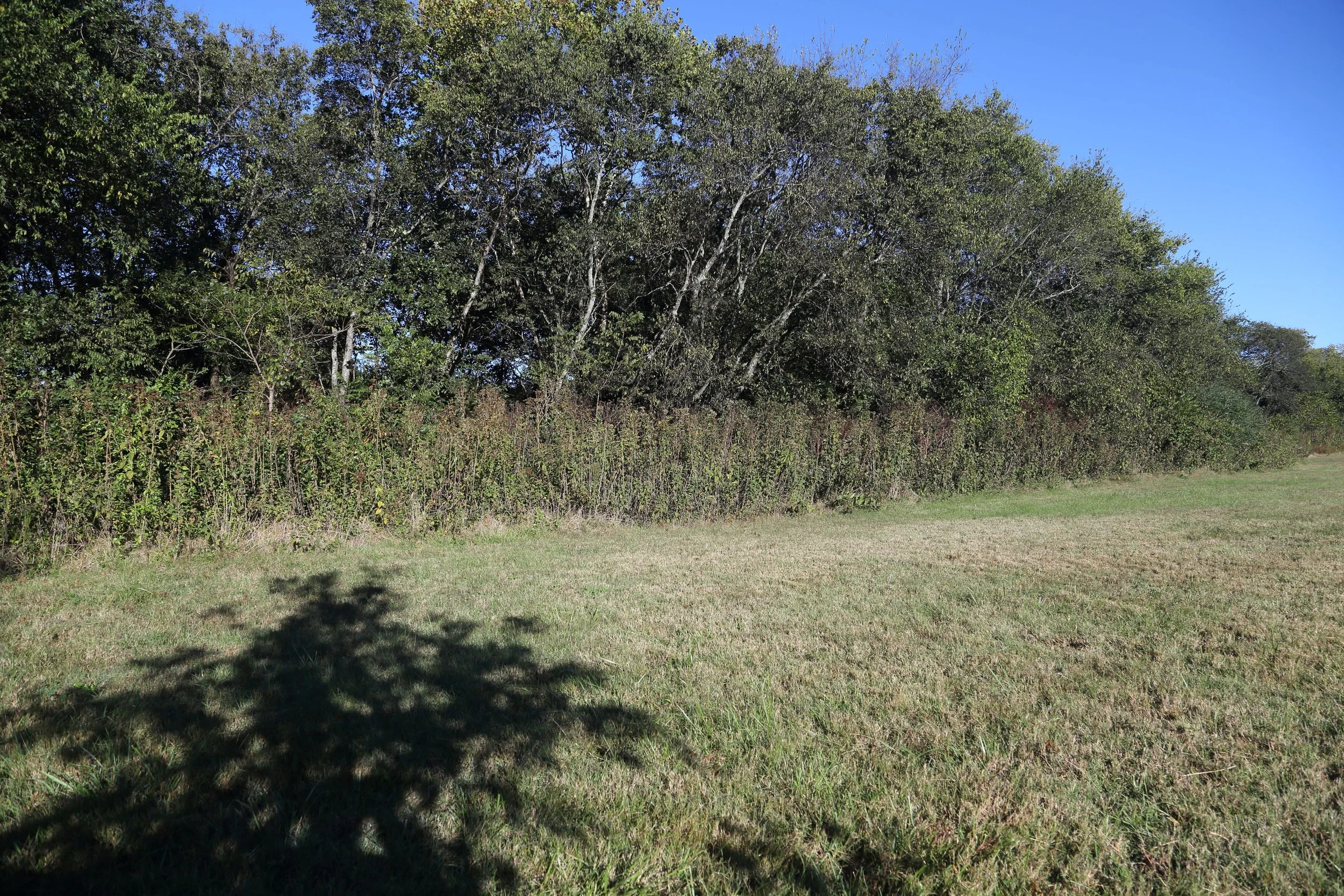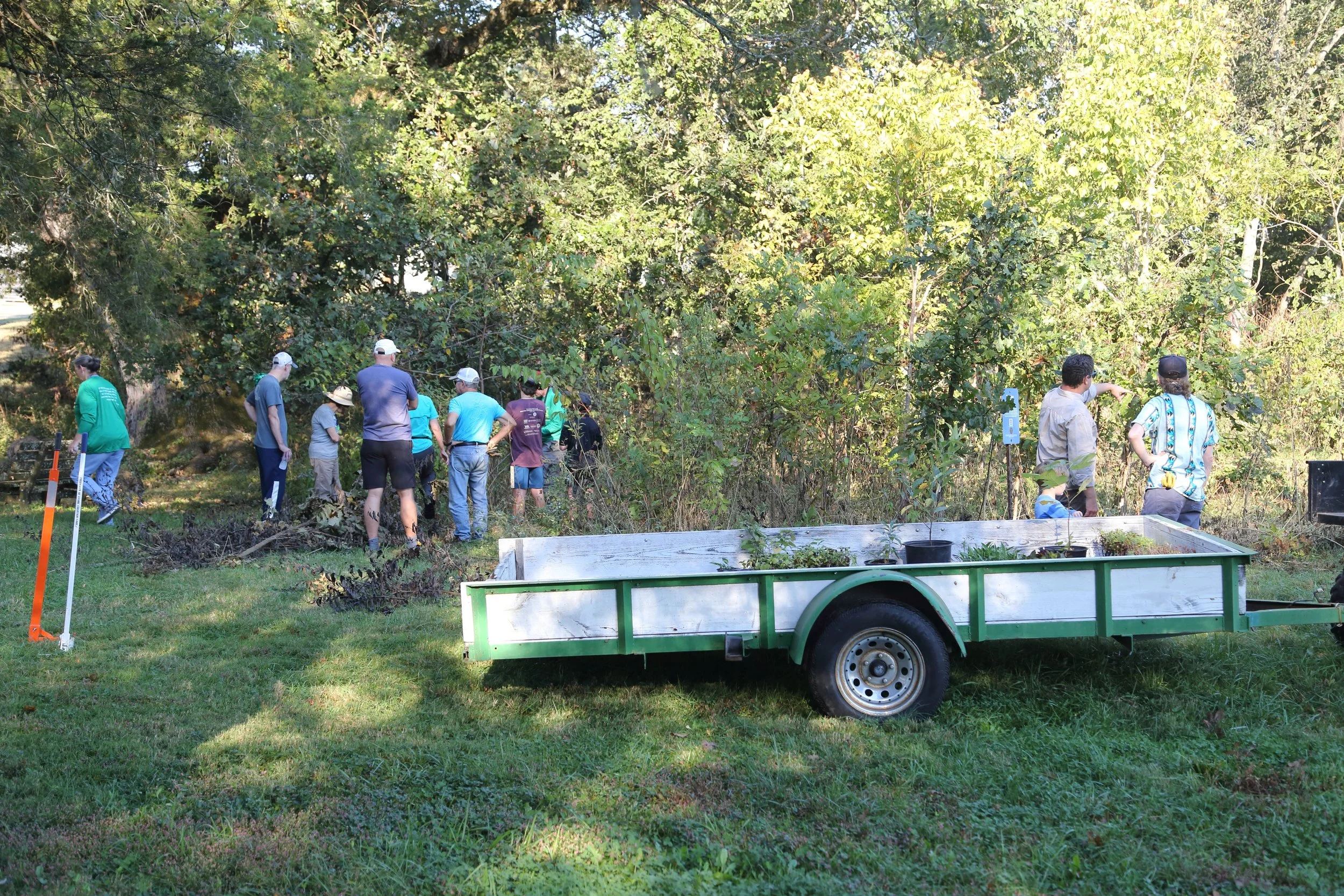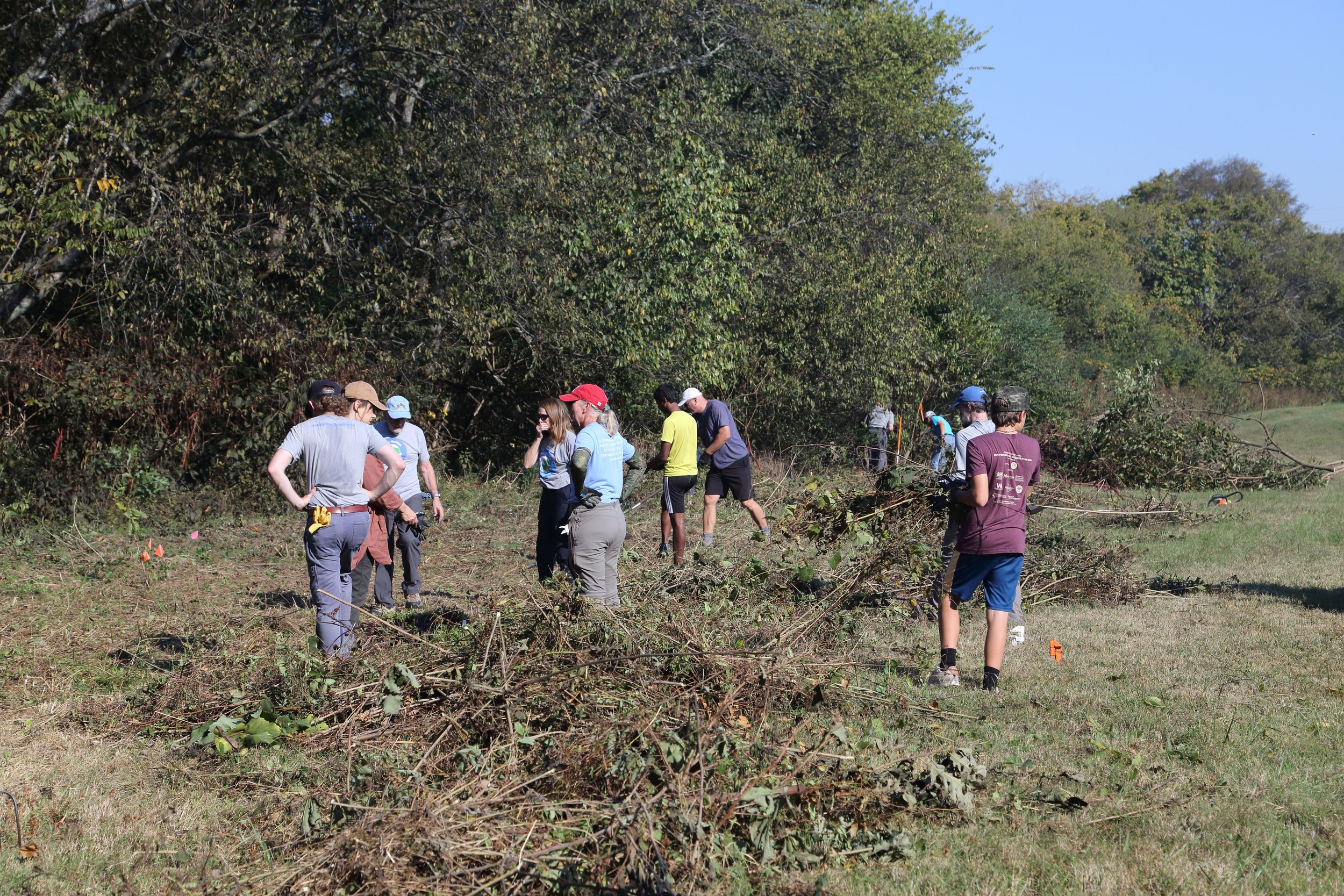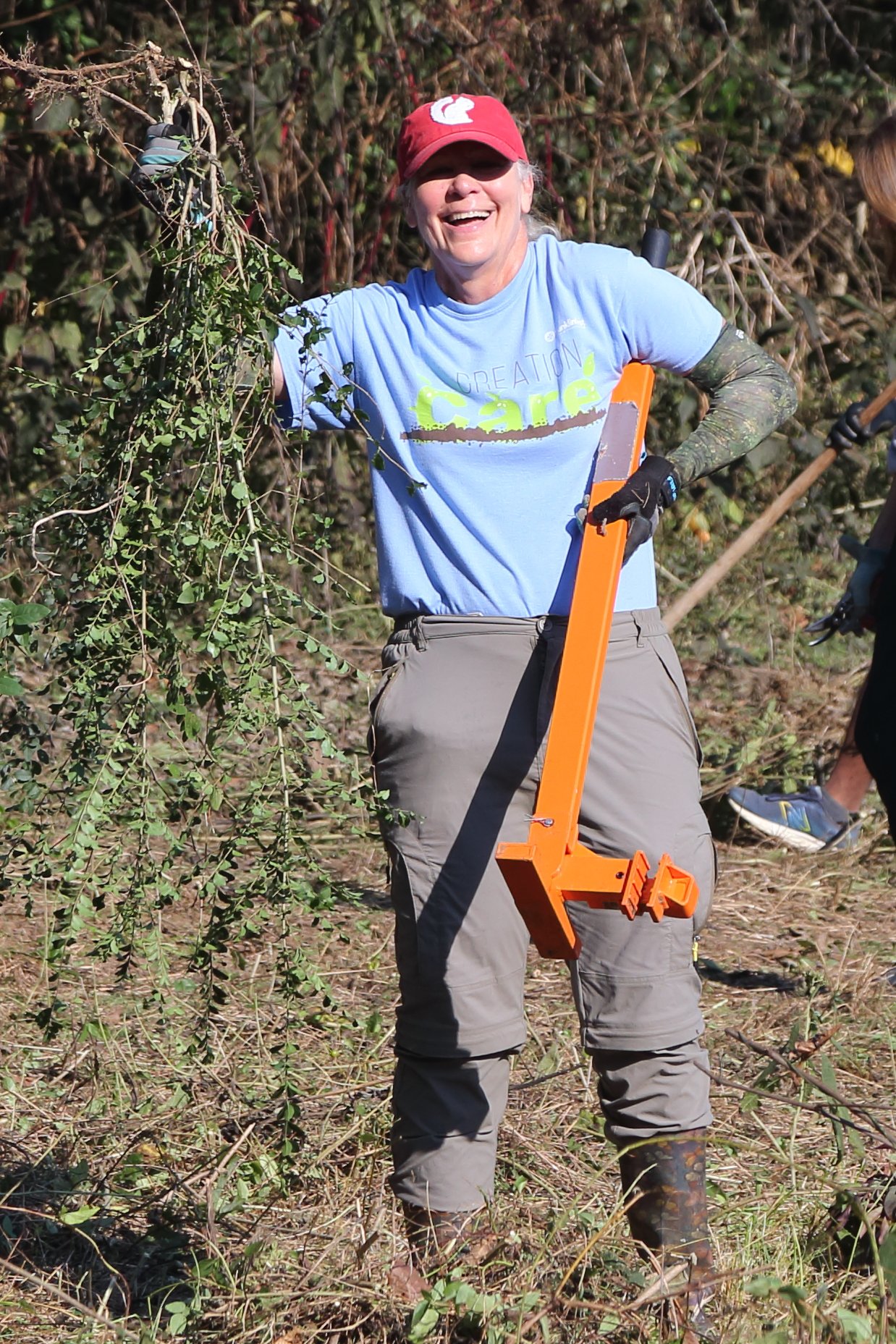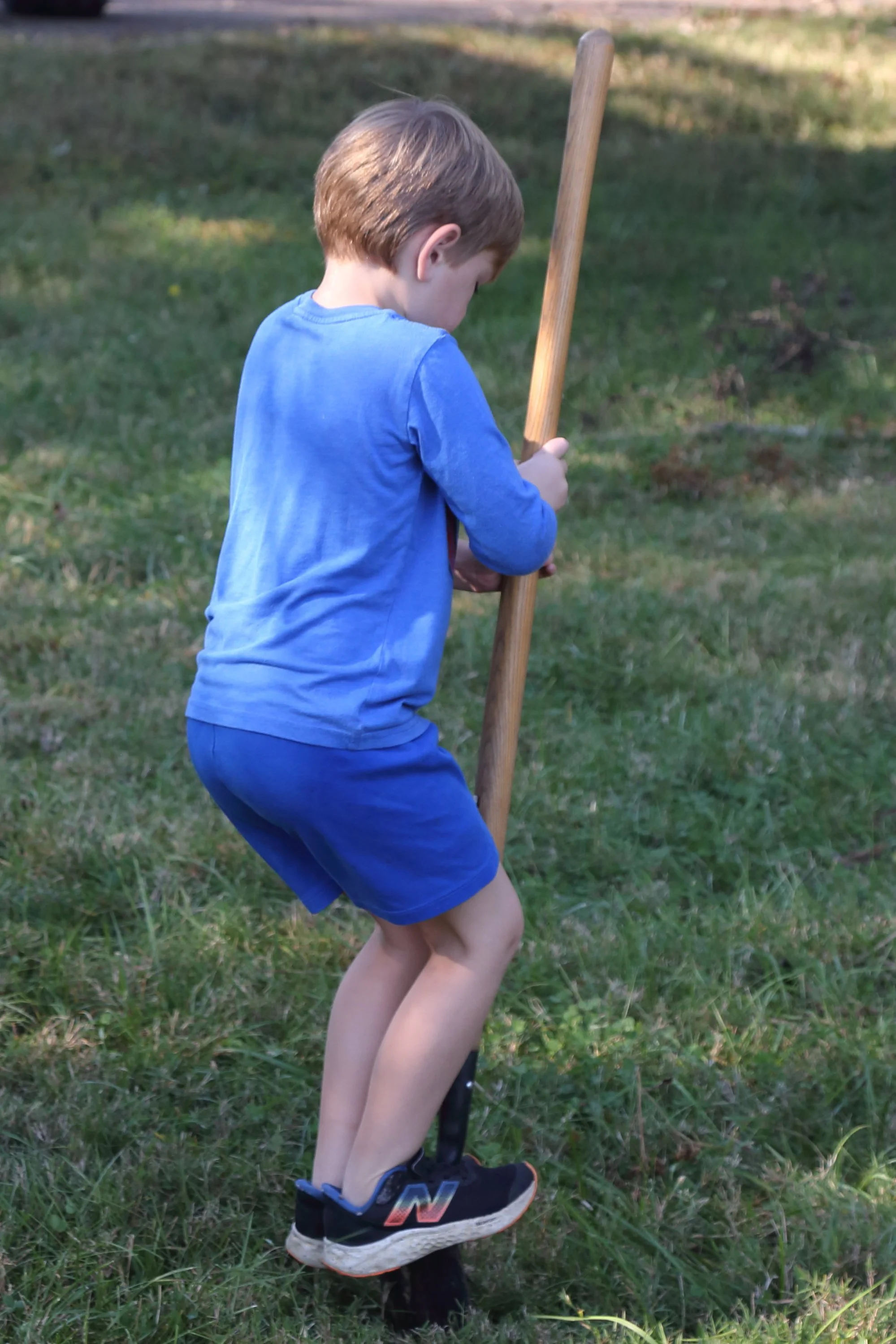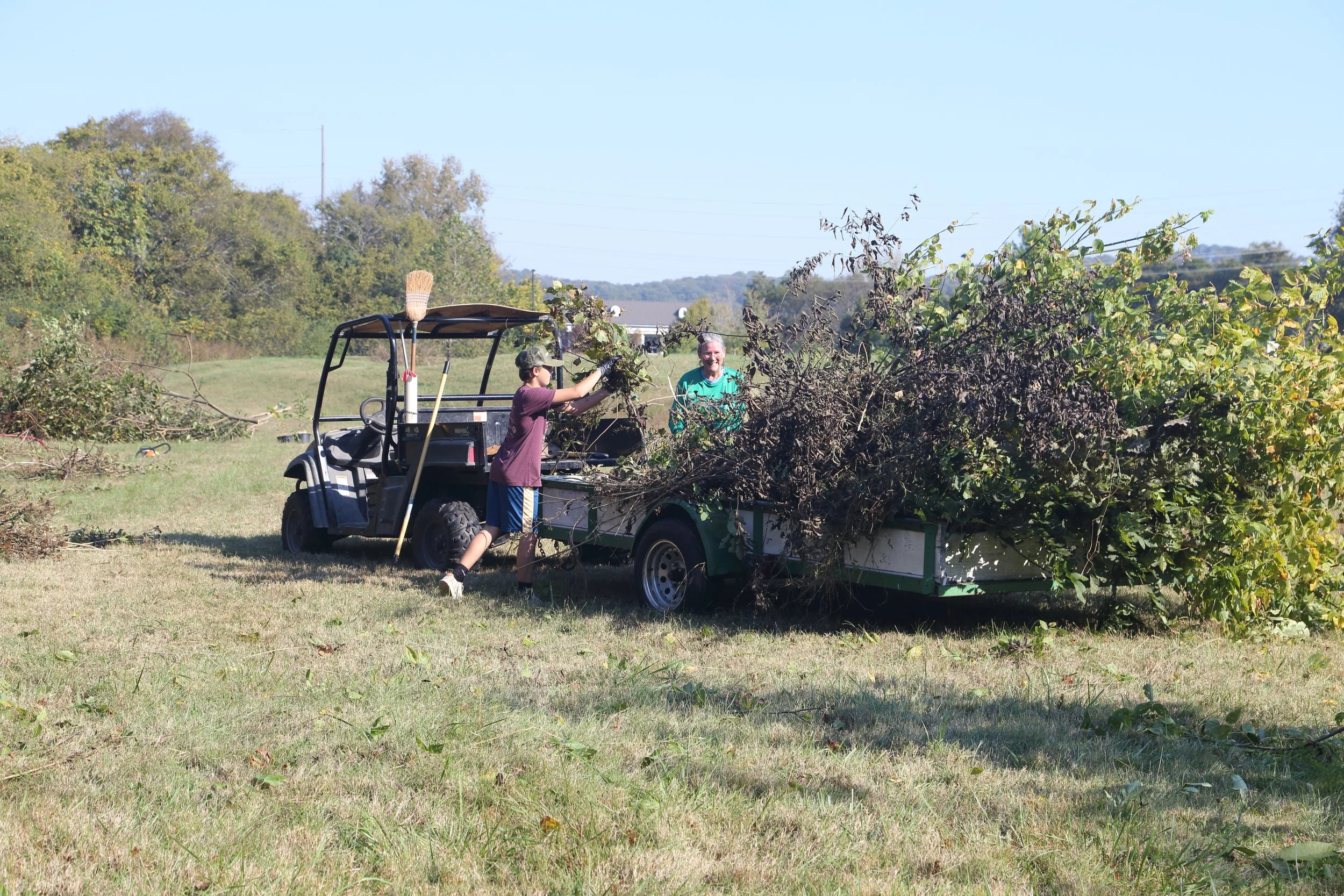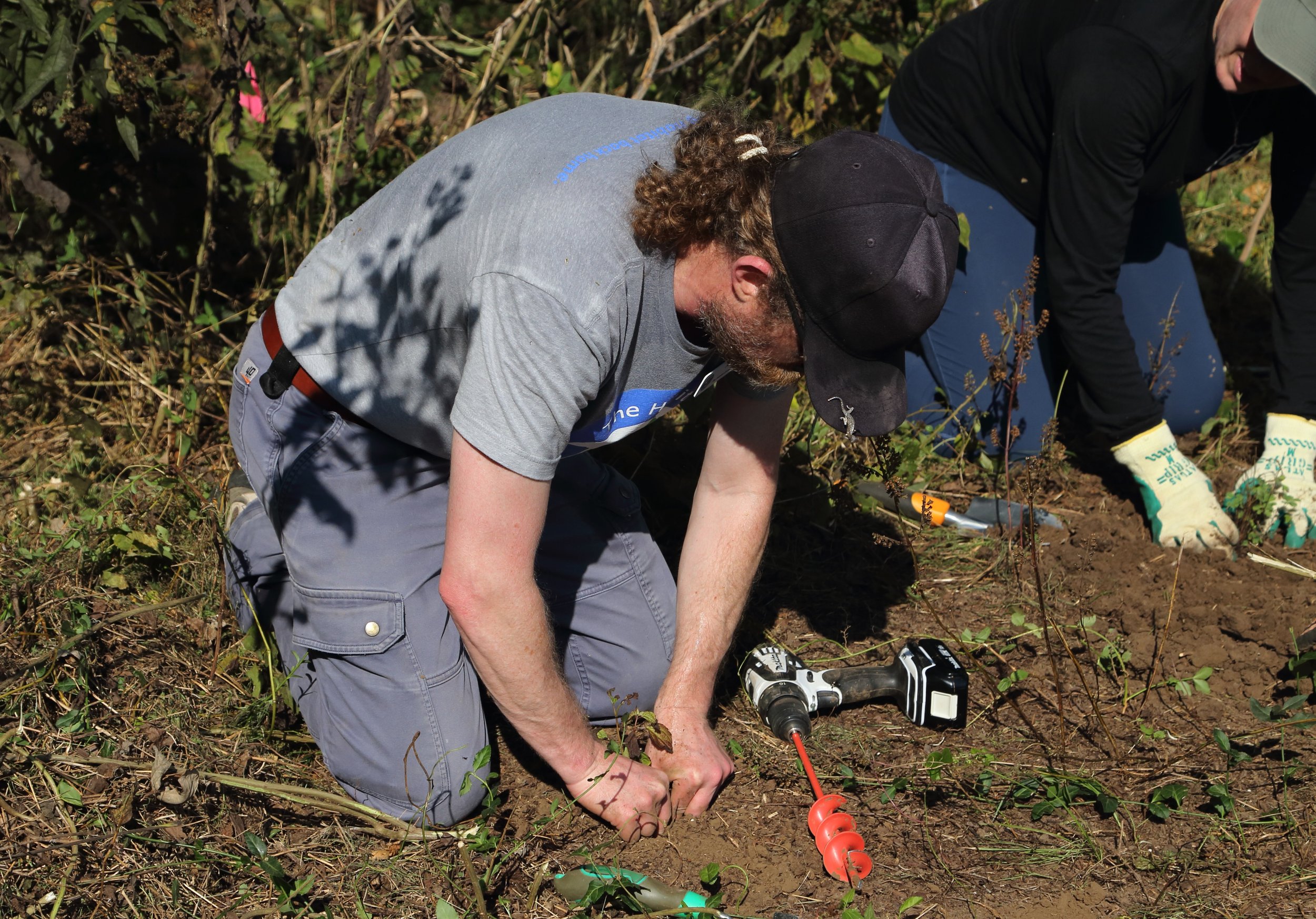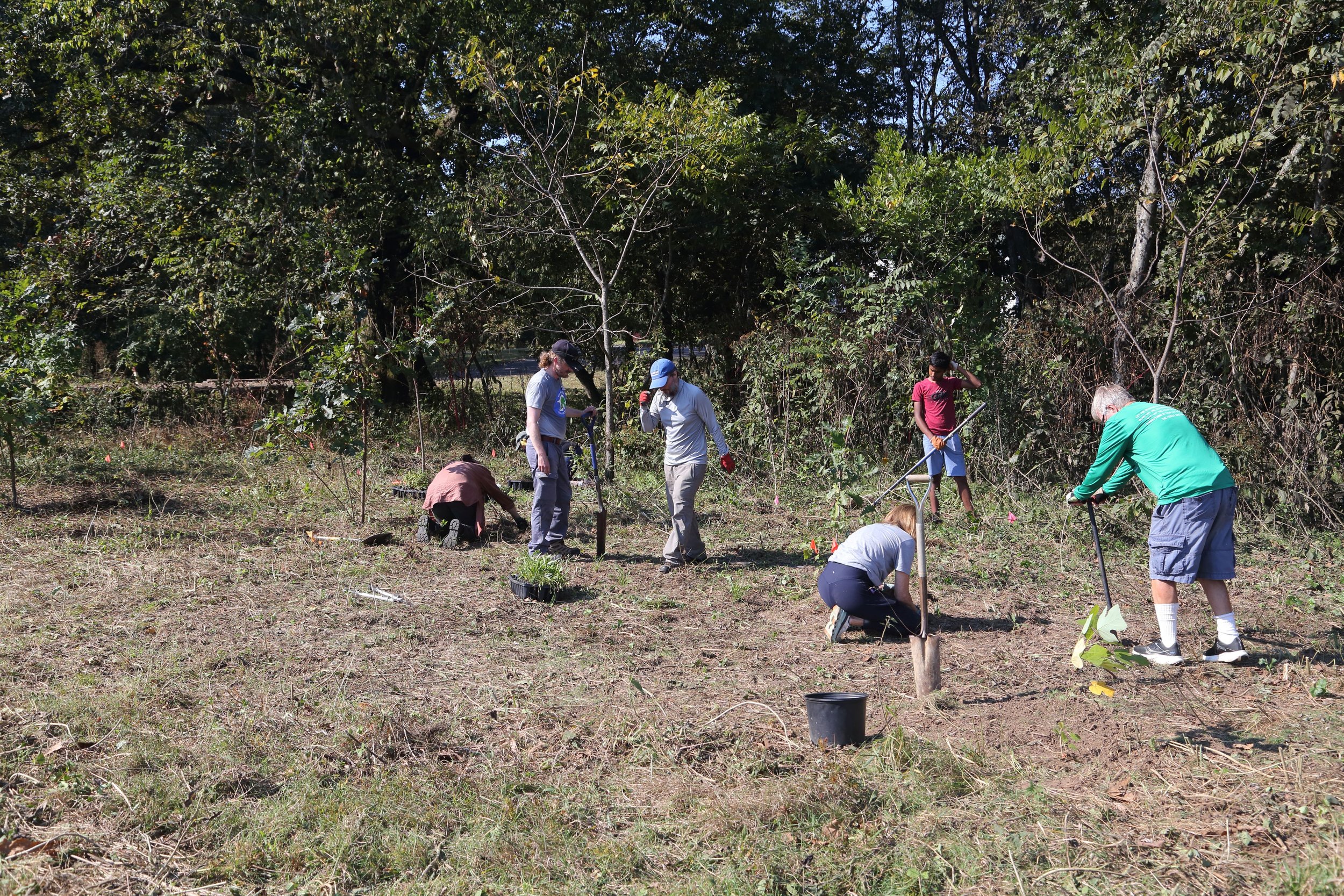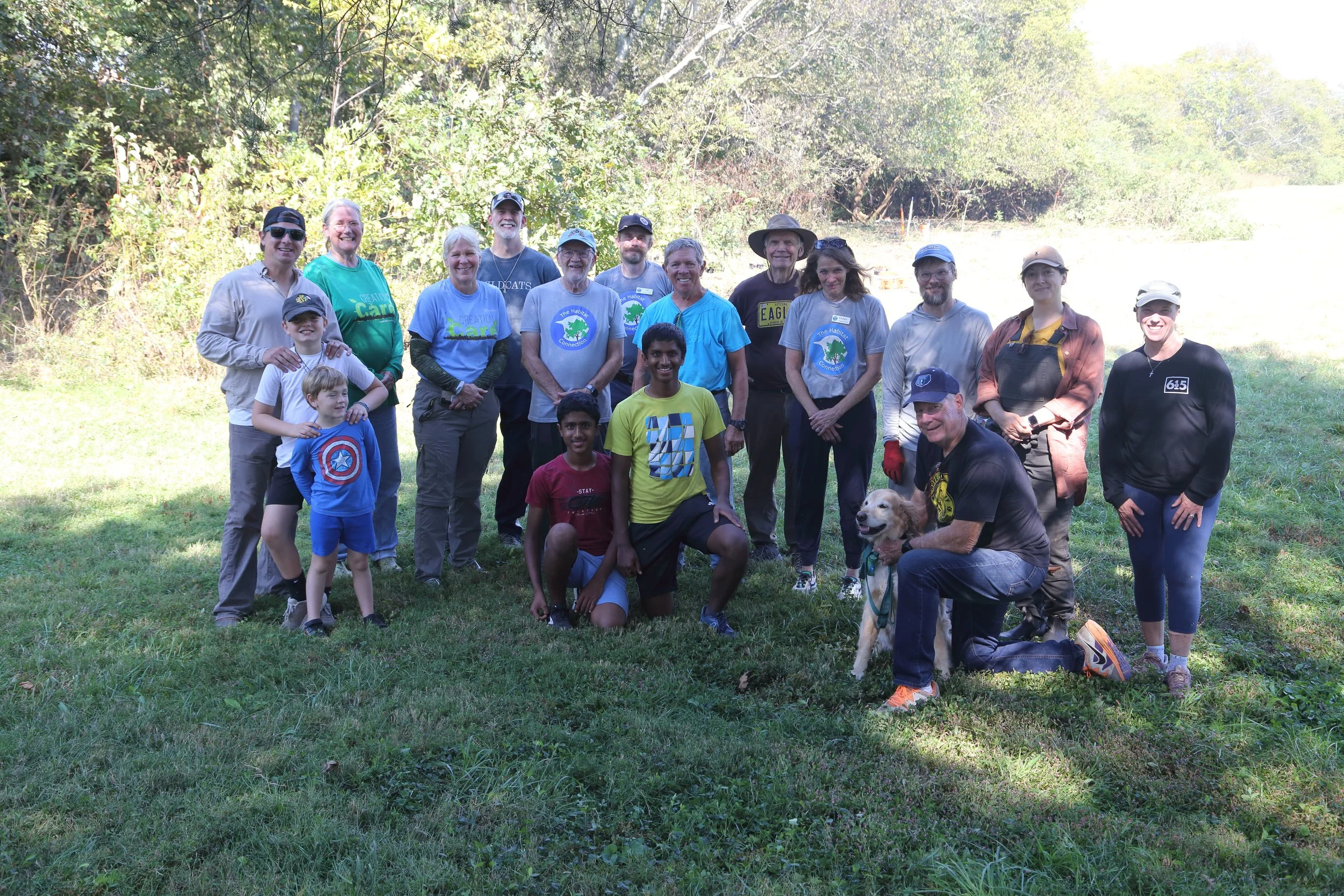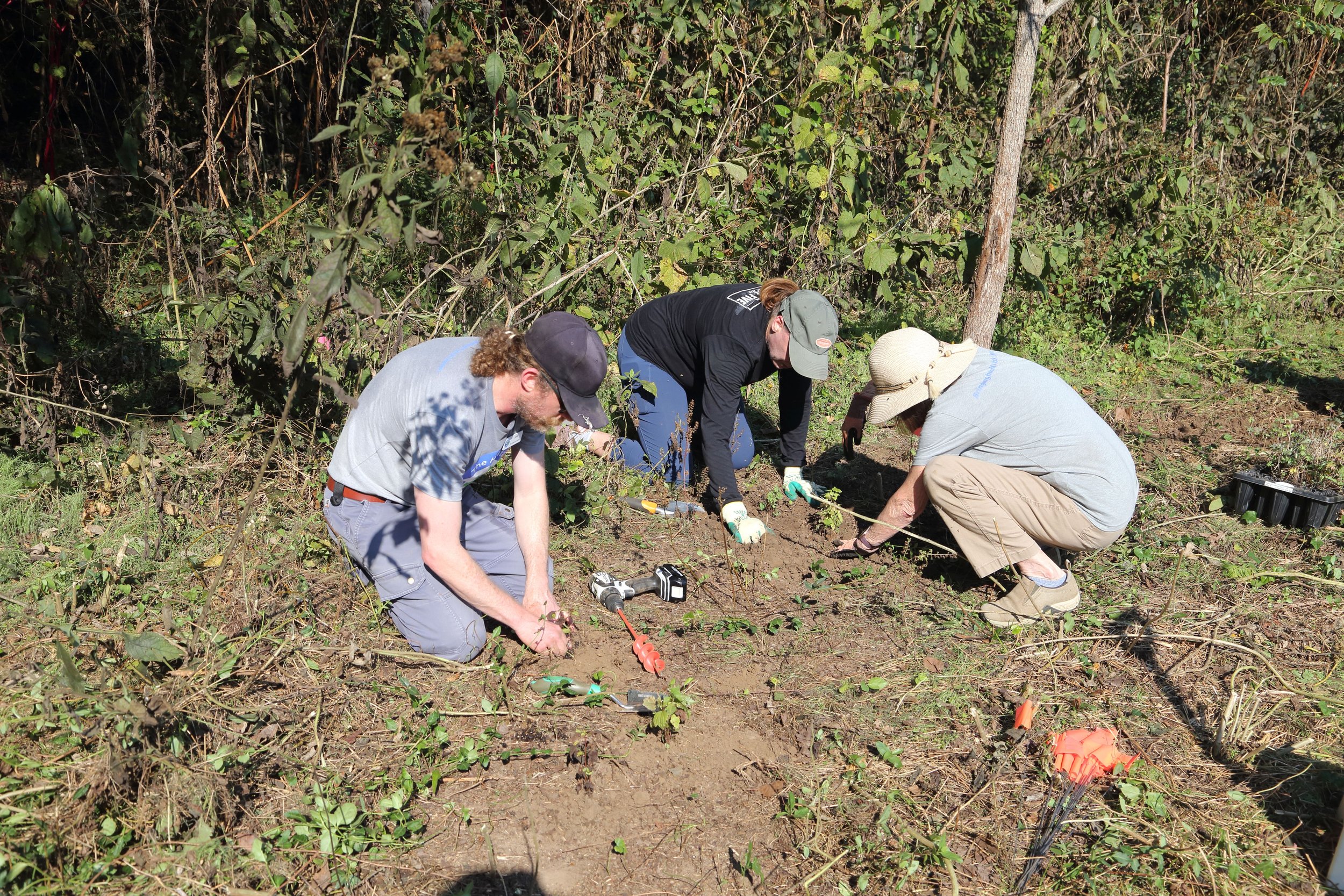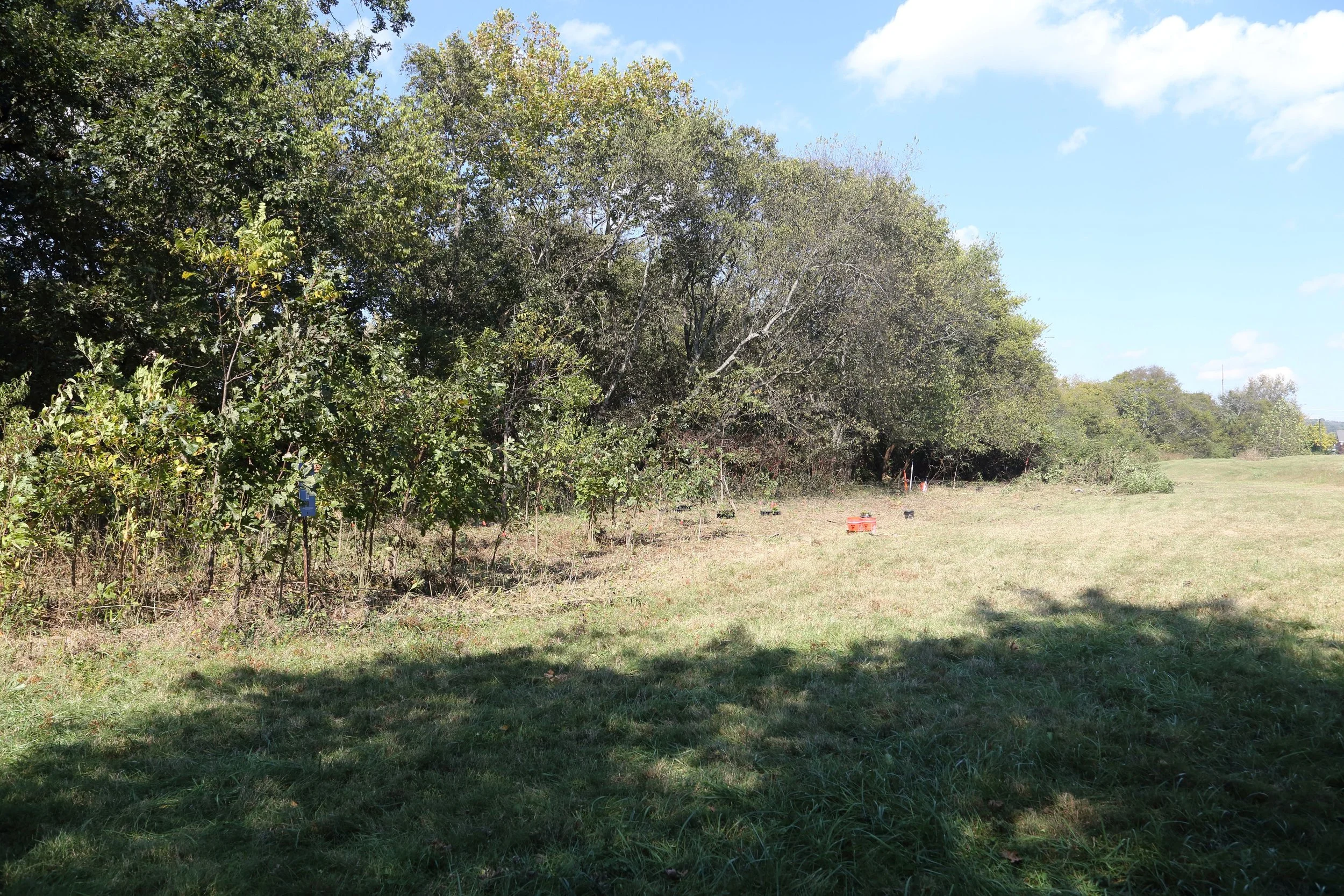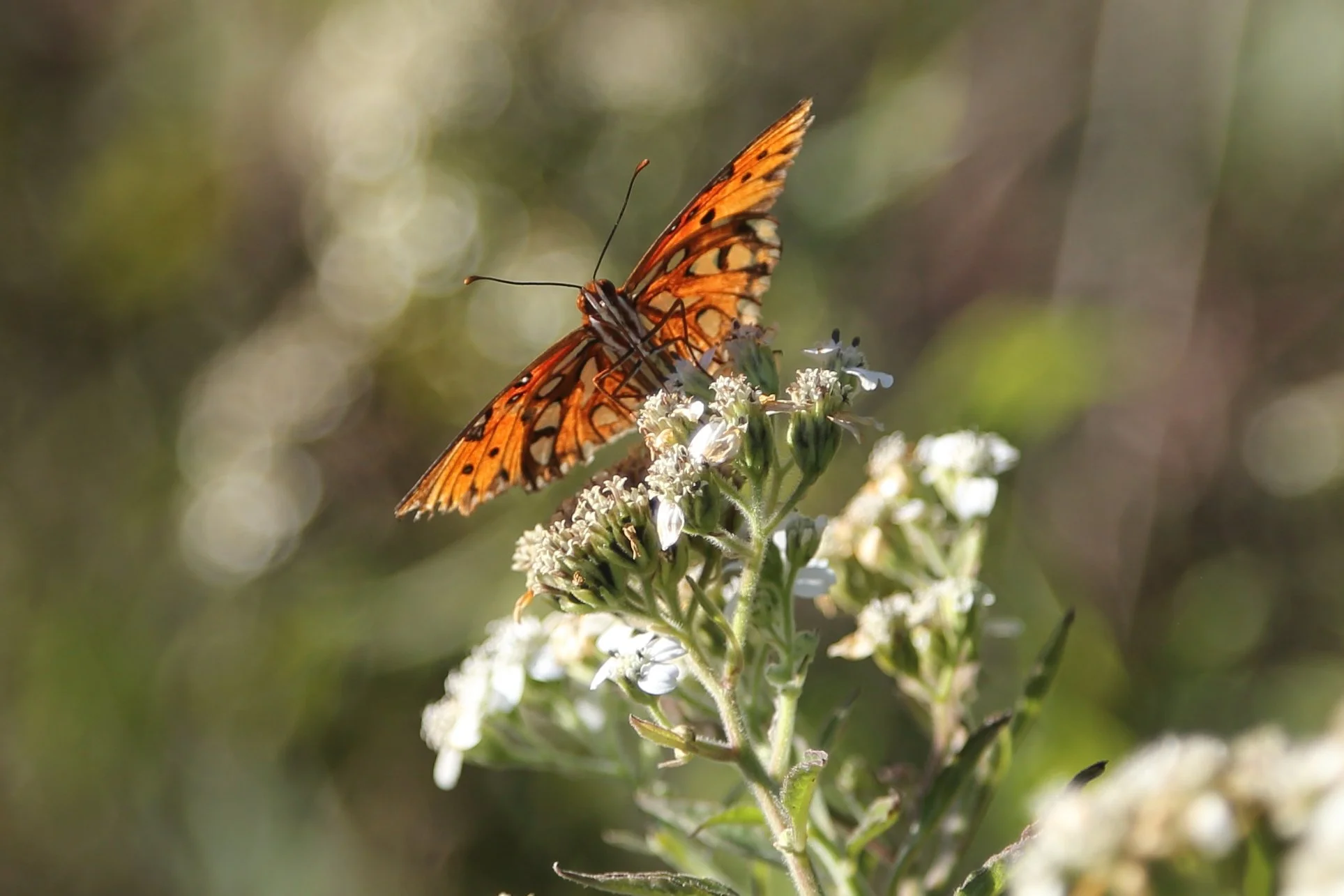Habitat Regeneration Projects
Pollinator Garden Installation
On November 19, 2025, we teamed up with the Tennessee Environmental Council and the Nashville Zoo to install a pollinator habitat at Liberty Elementary School in Franklin! Our incredible volunteers cleared the area of grass, spread nutrient rich soil, and sprinkled a blend of native wildflower seeds! Teachers brought their classes out to learn about pollinators and biodiversity. We can’t wait to share updates in the spring when the flowers begin to grow and bloom.
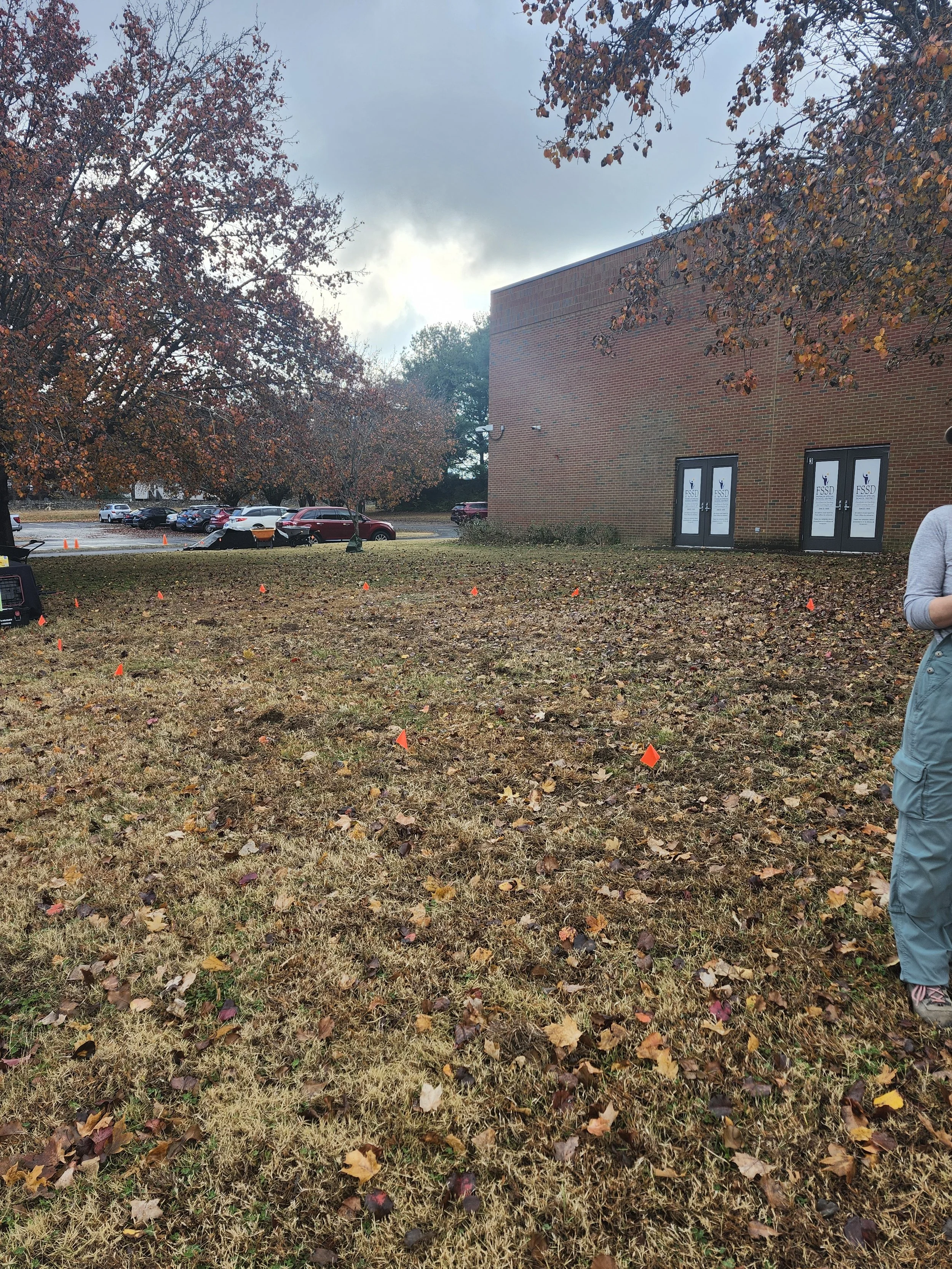
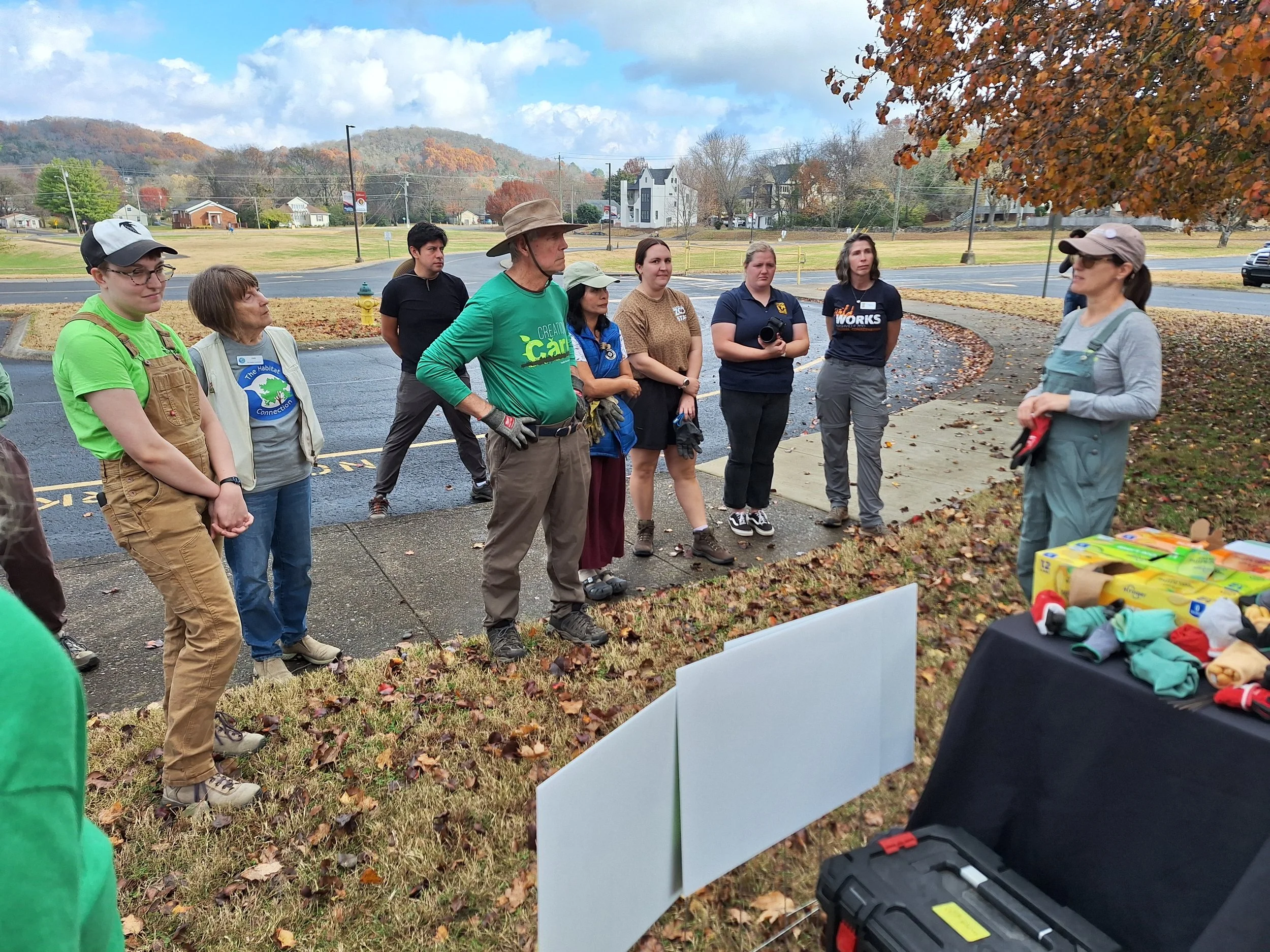
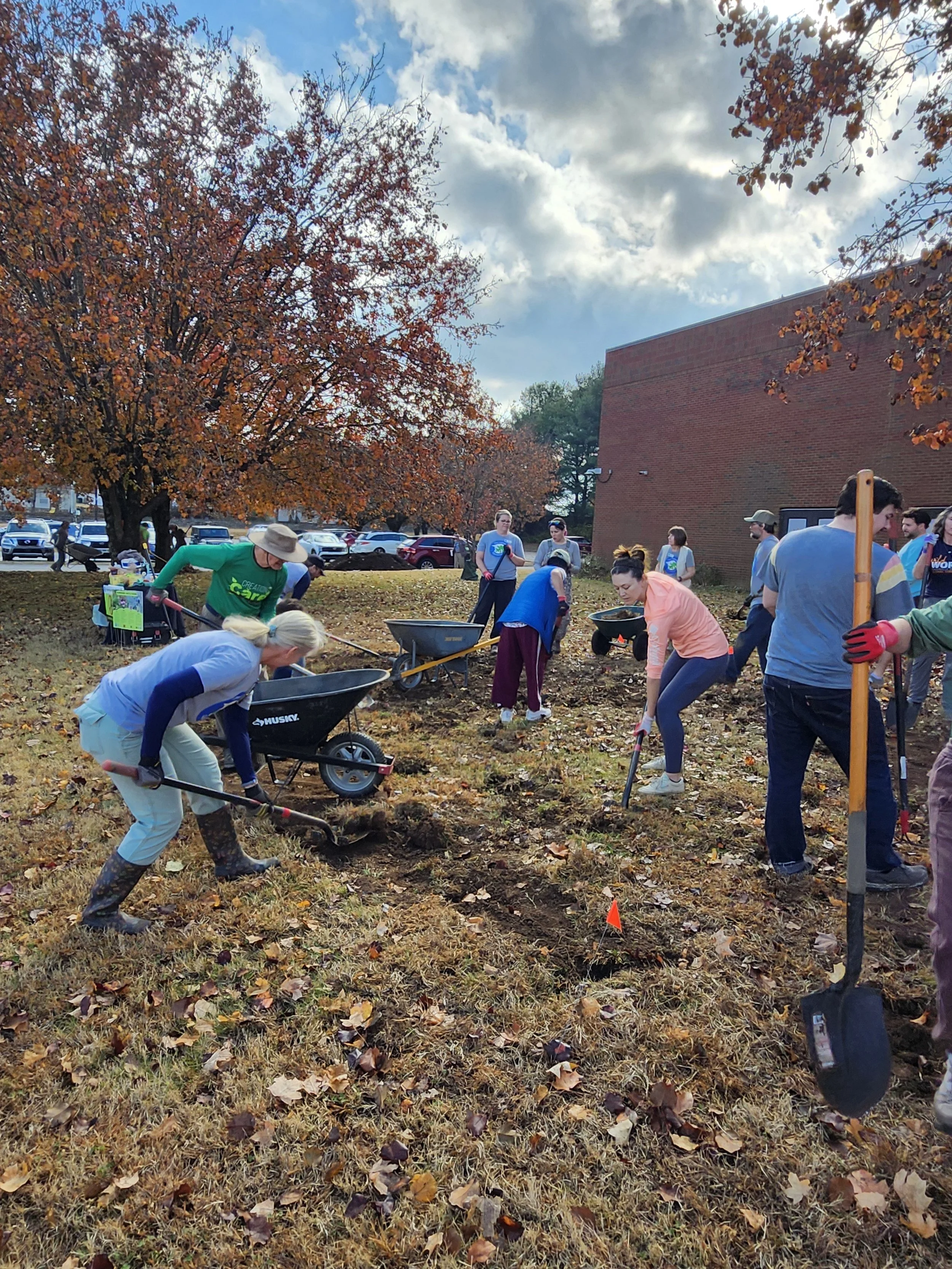
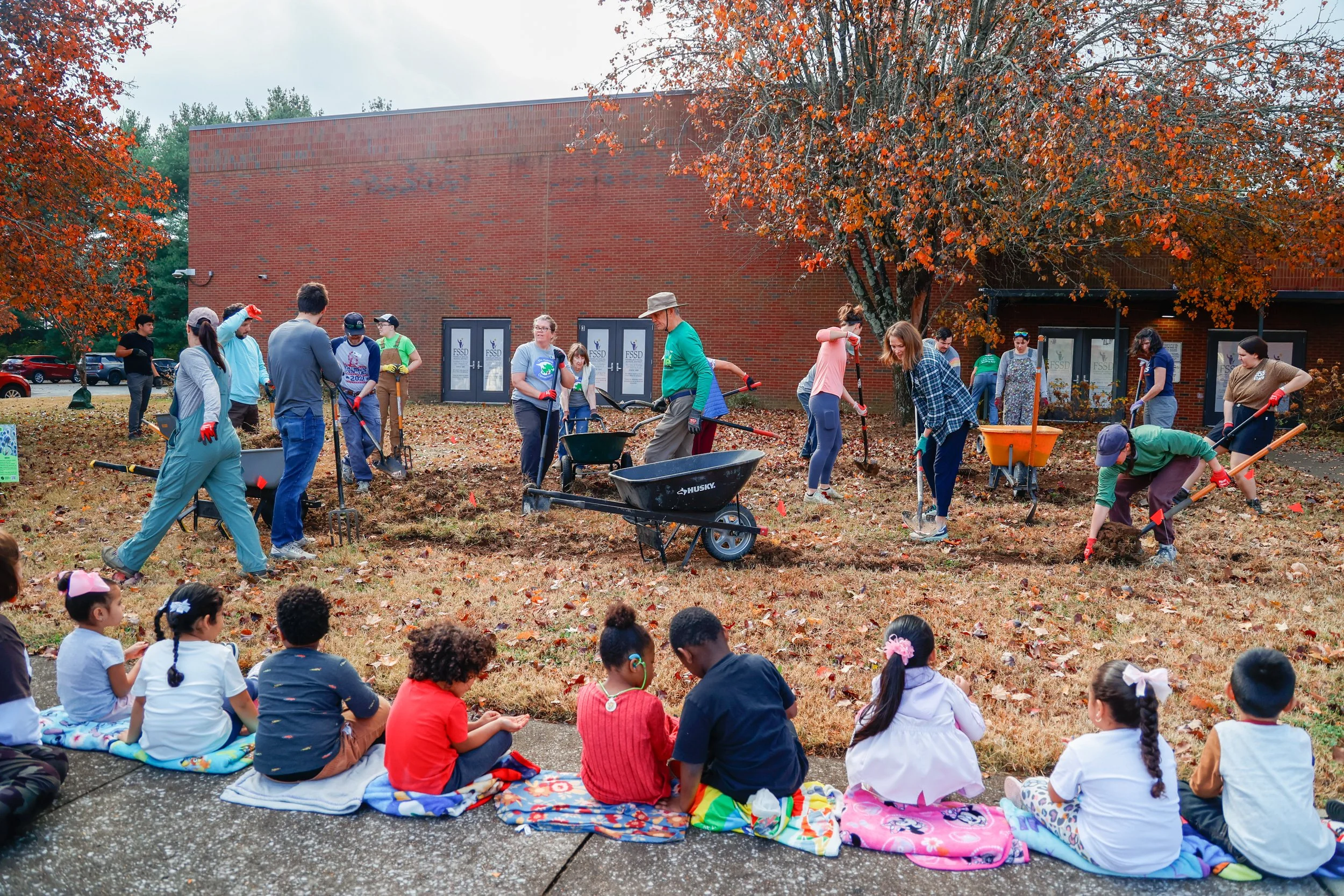
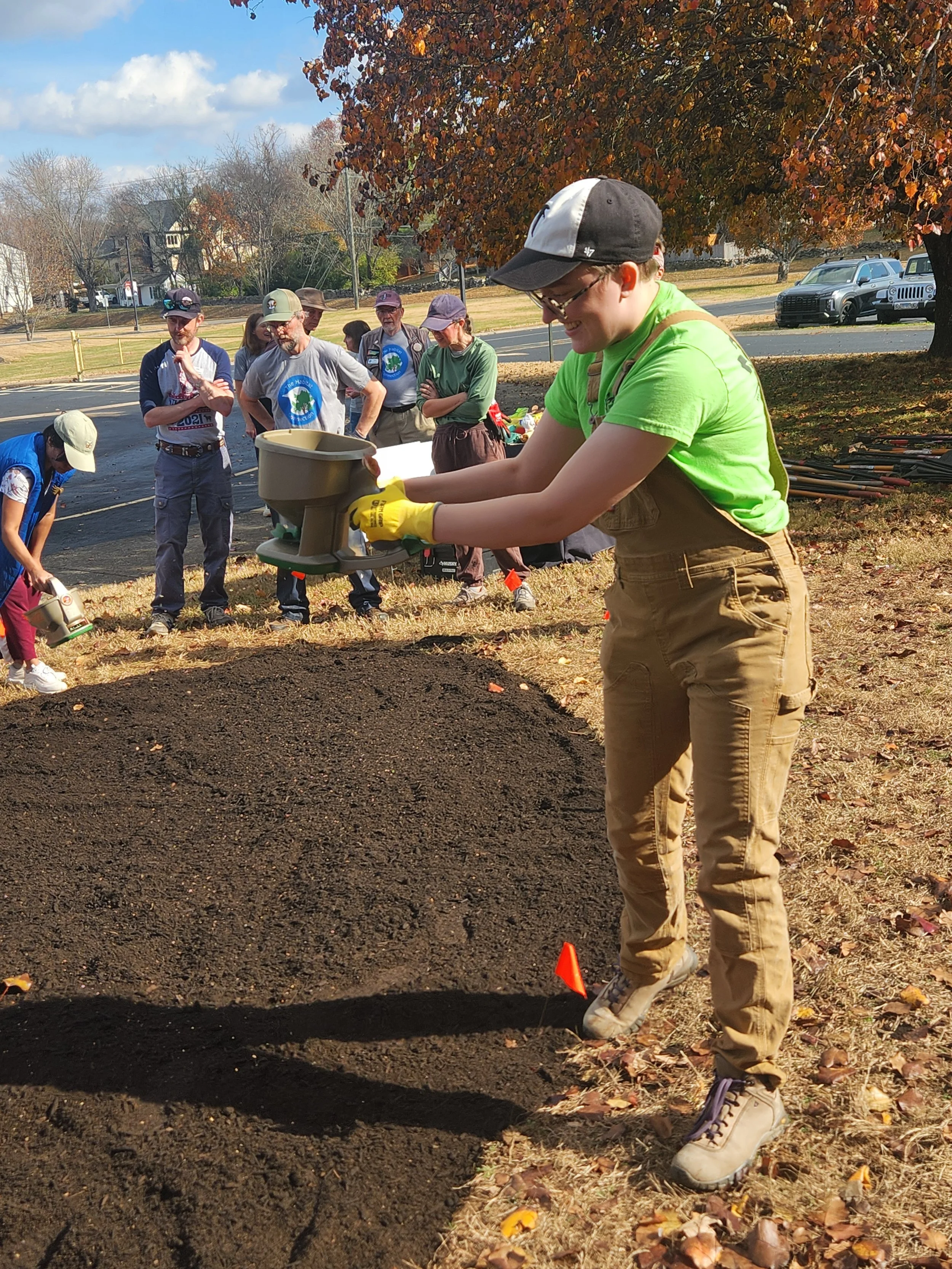
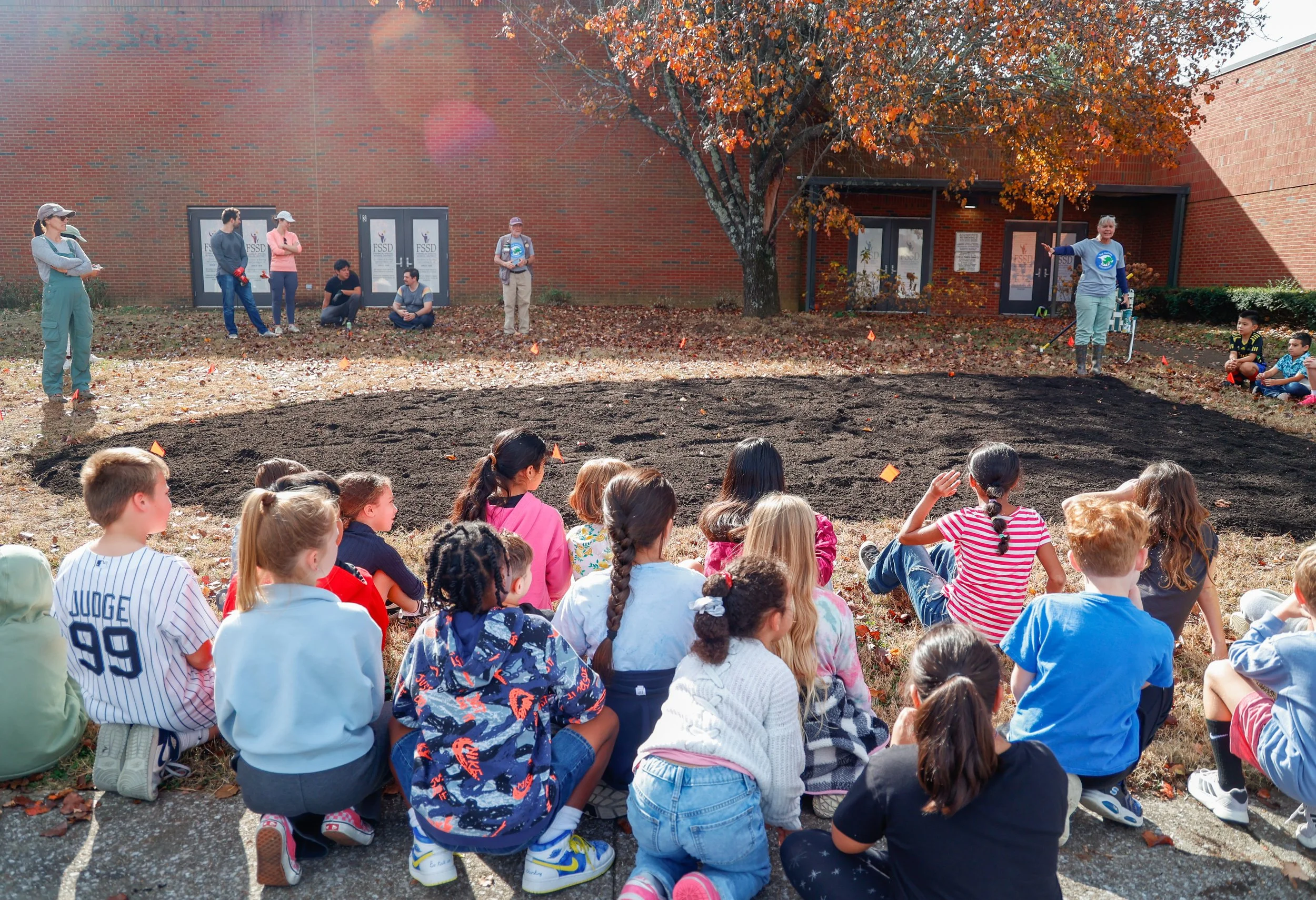
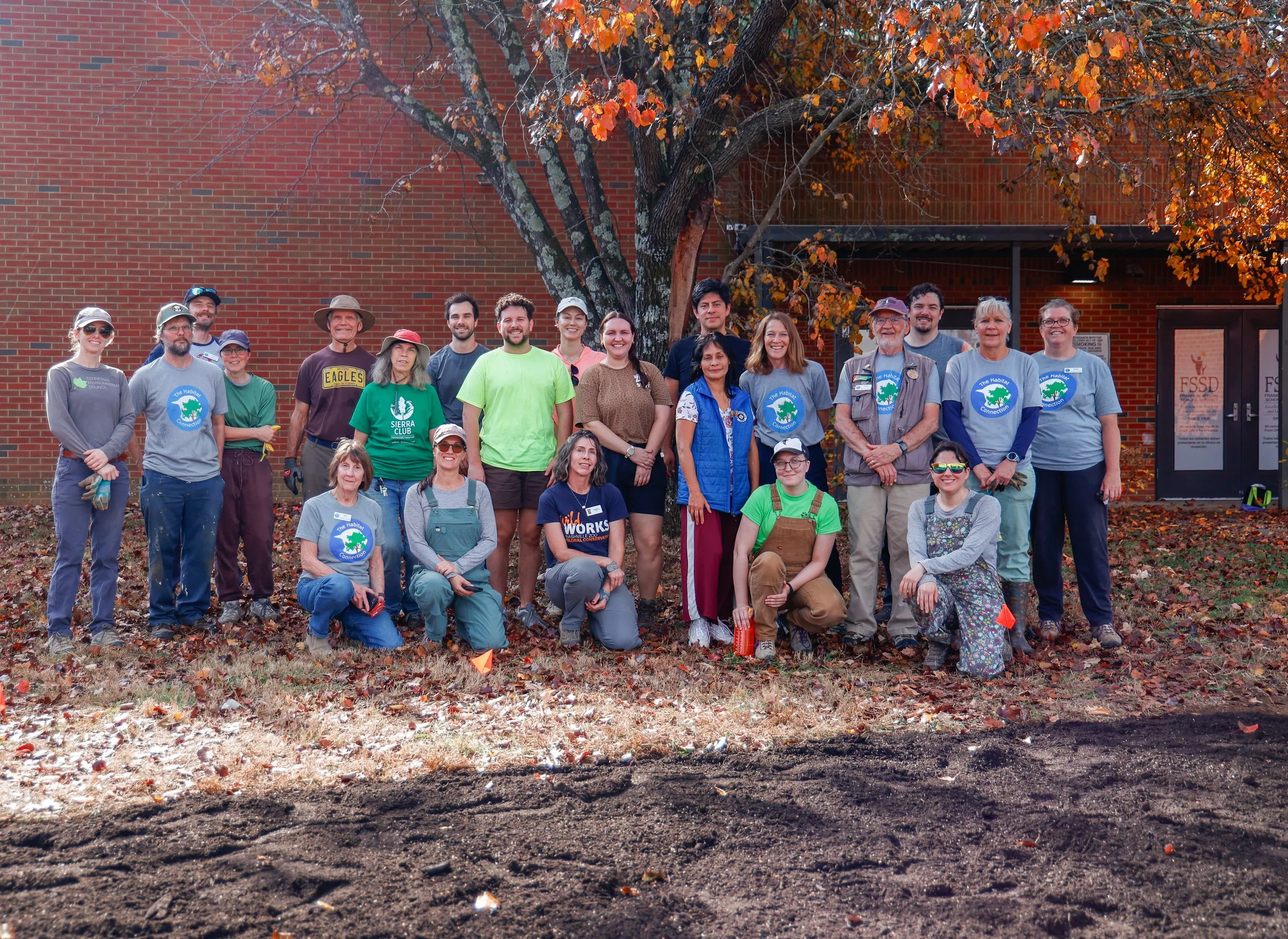
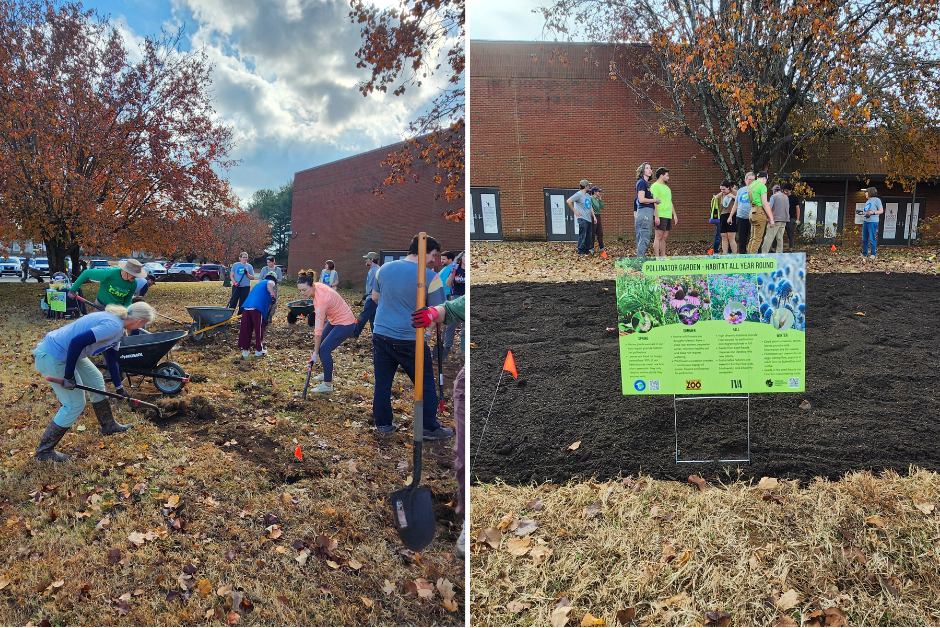
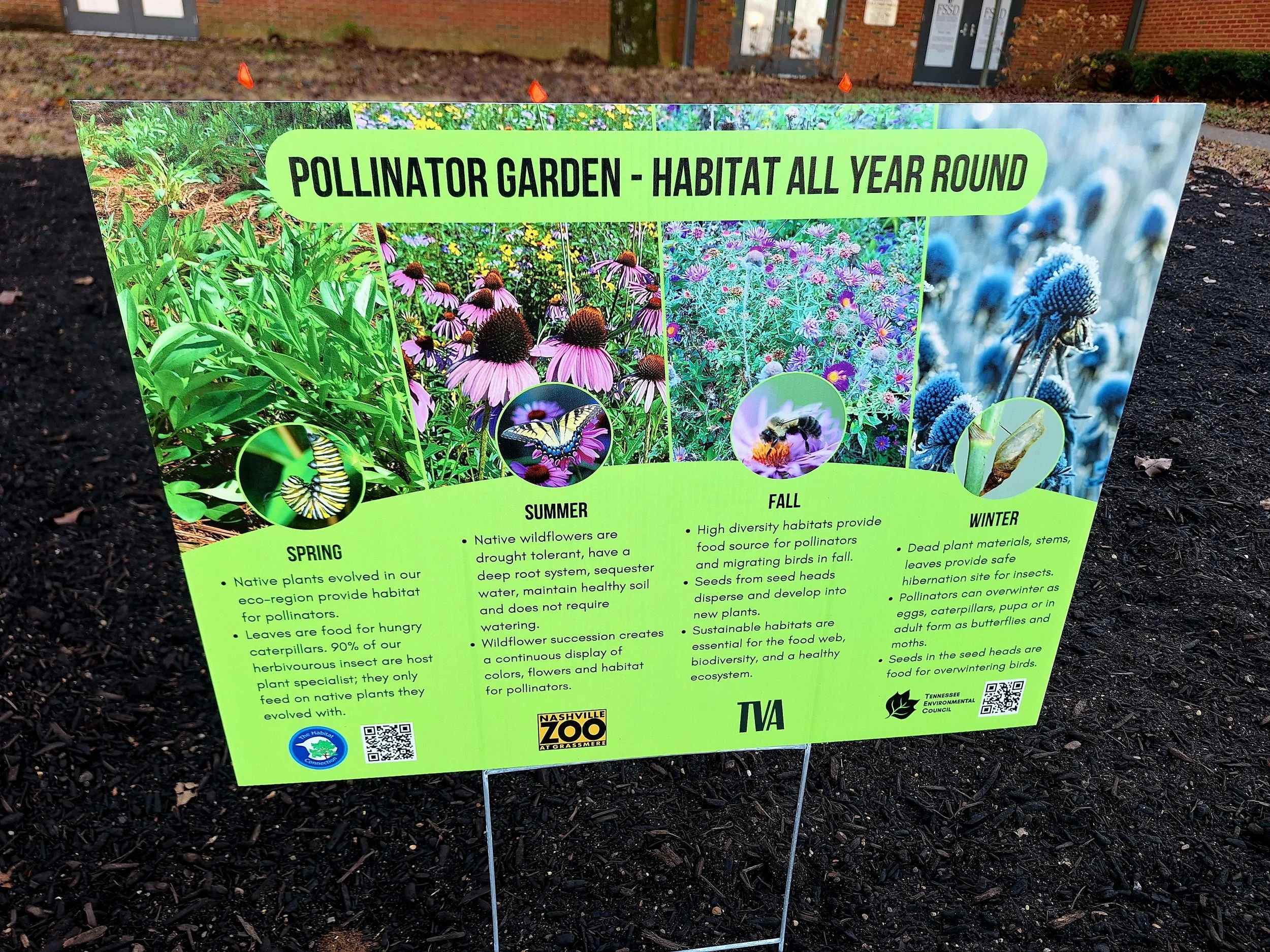
Pull, Plant, Do-Good!
On October 18th, 2025, in partnership with Franklin First United Methodist Church, our team of 25 volunteers removed invasives like Japanese honeysuckle and privet along Berrys Chapel Branch Creek. Once the area was clear, we planted 240 native plugs that will bring pollinators, birds and other wildlife to the area. We are grateful to the Tennessee Valley Authority for sponsoring this educational and impactful event!
Cottonwood HOA
In July 2024, the Habitat Connection began serving as Habitat Advisors for the Cottonwood Homeowners Association (CHOA) in Franklin, TN, which aims to restore native habitat in their common ground and natural areas. From invasive plant management to creating native meadow and “no mow” areas, we will assist CHOA in transforming these targeted areas into a showcase for biodiverse ecosystem management in a suburban setting. These projects will demonstrate good land stewardship practices, improve community involvement, increase property values, and reduces operating expenses.
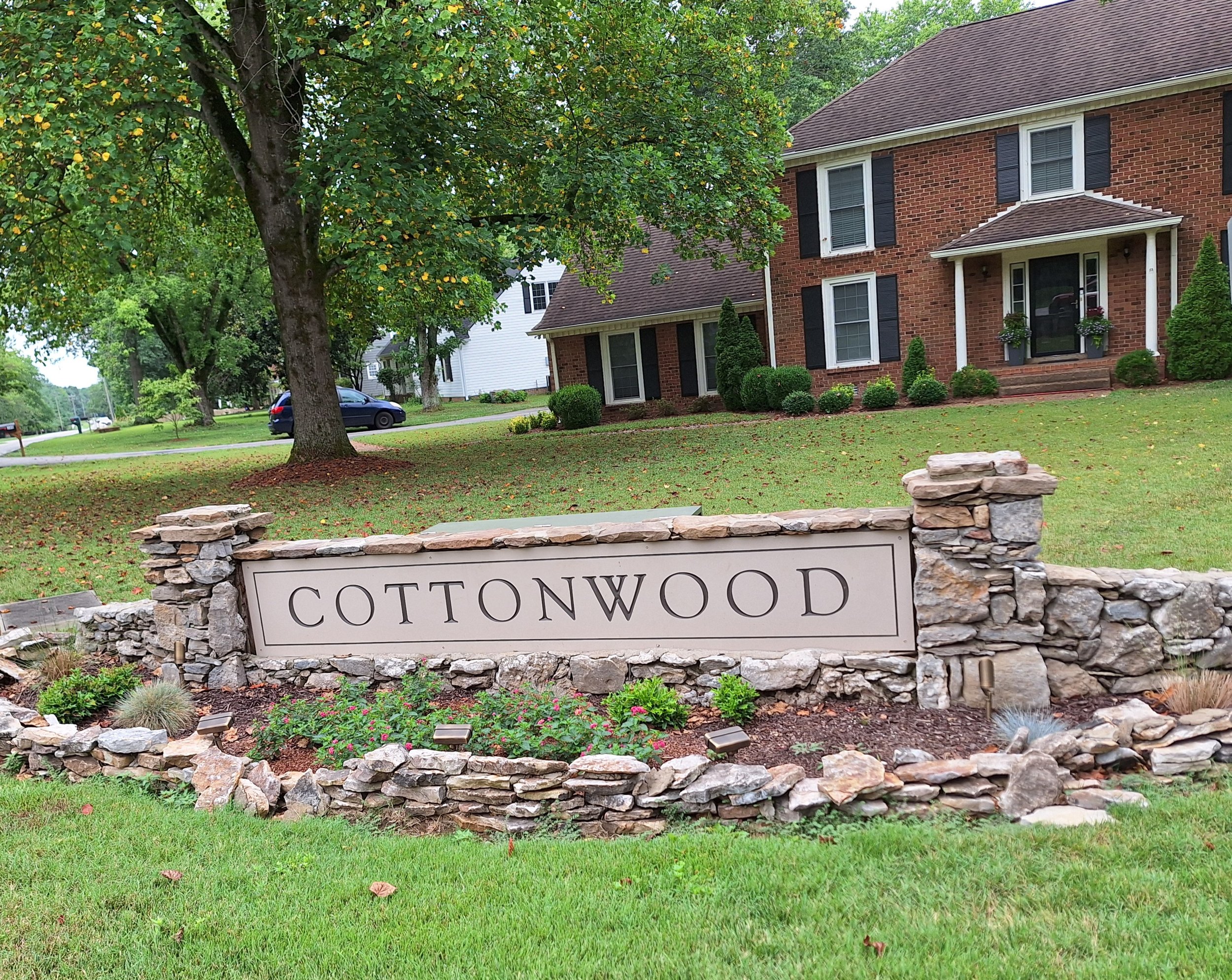
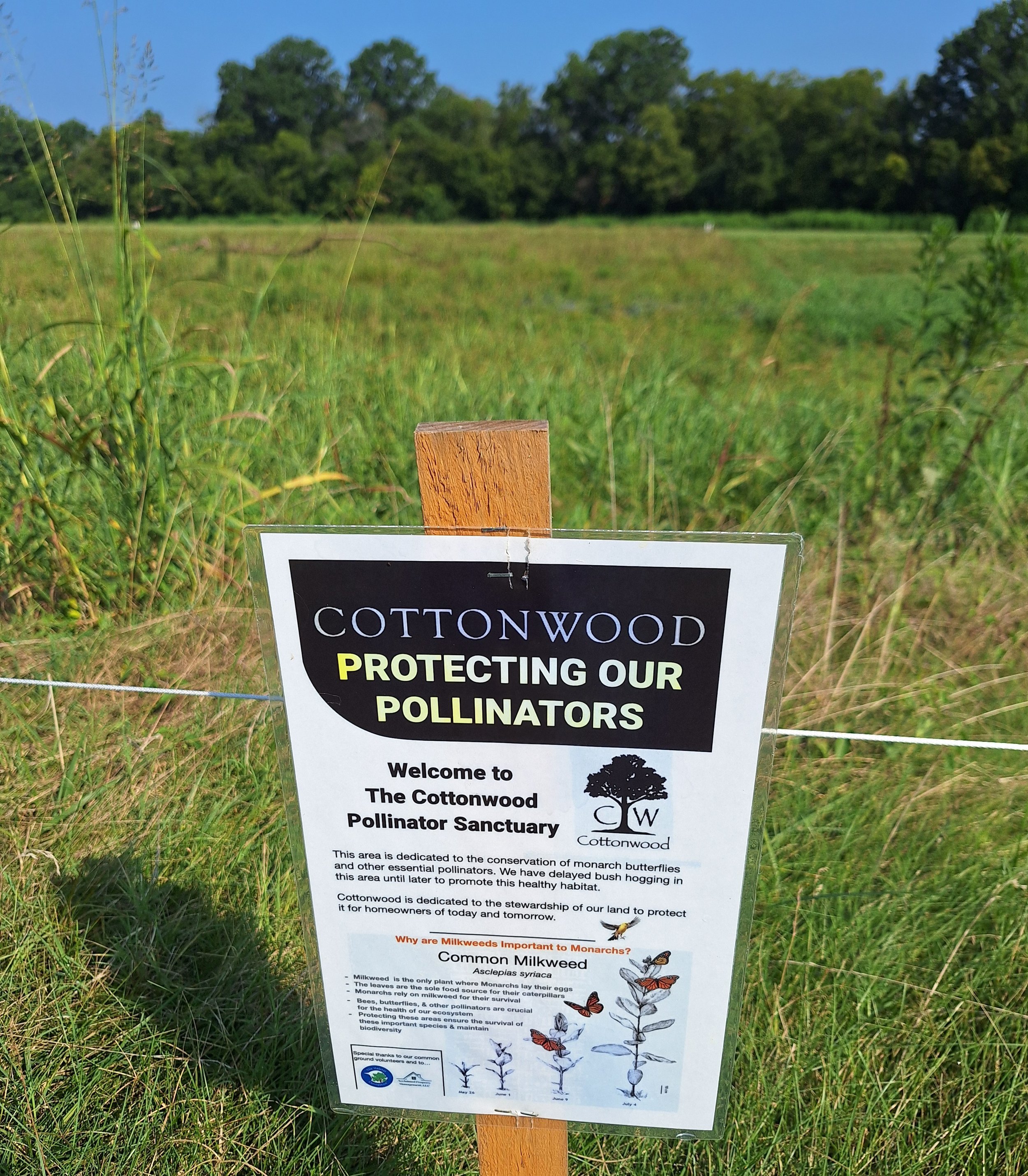
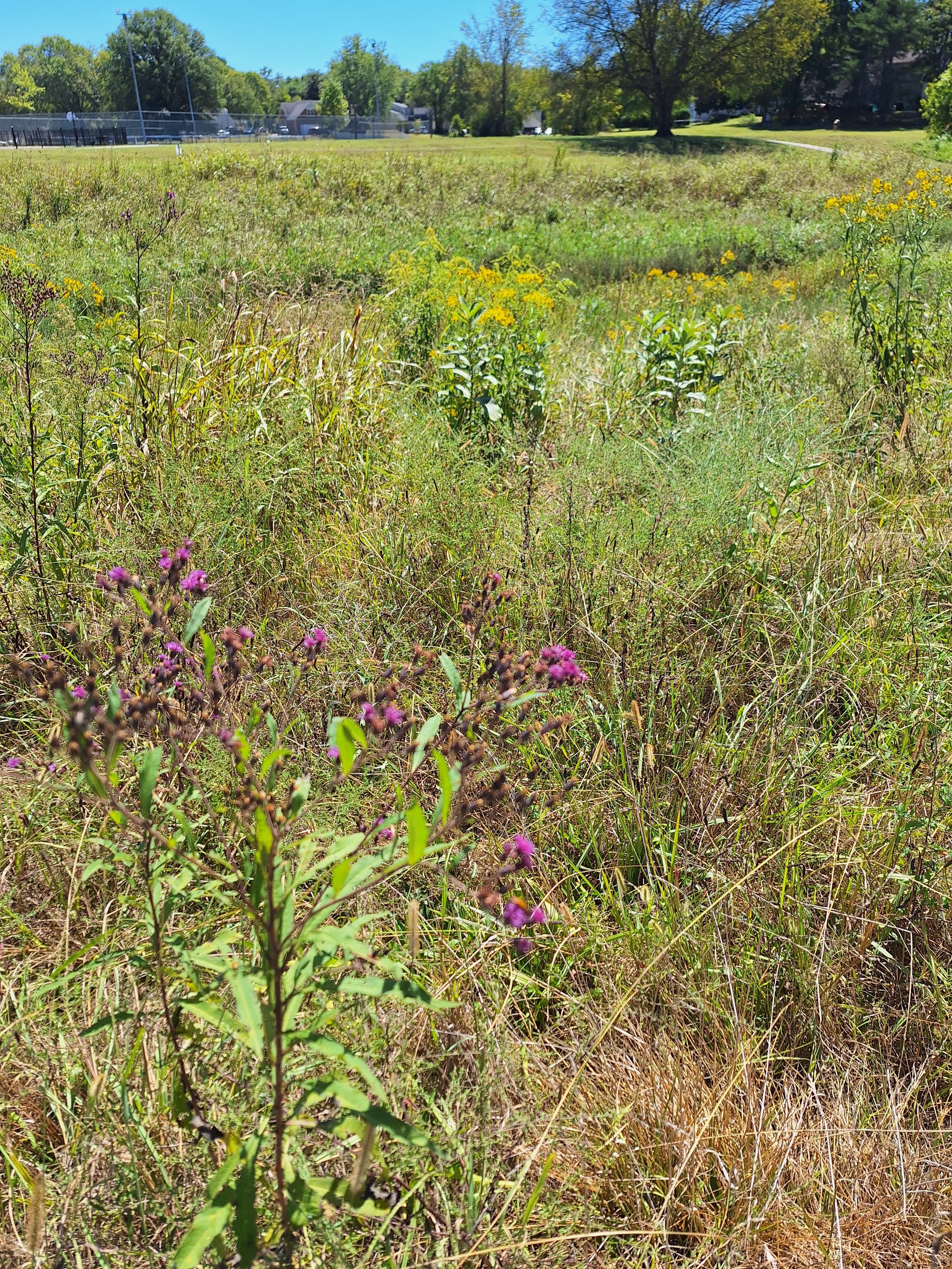
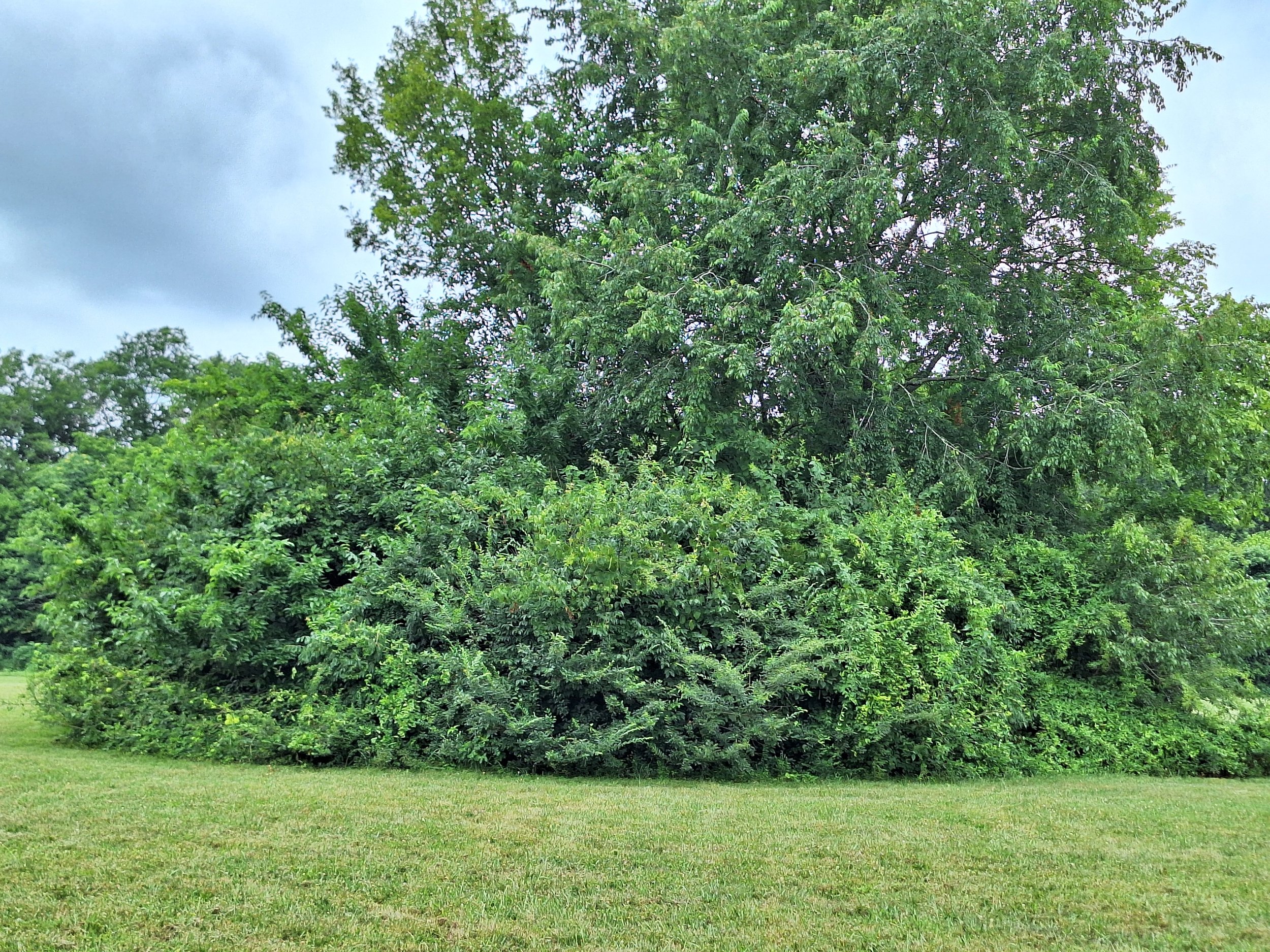
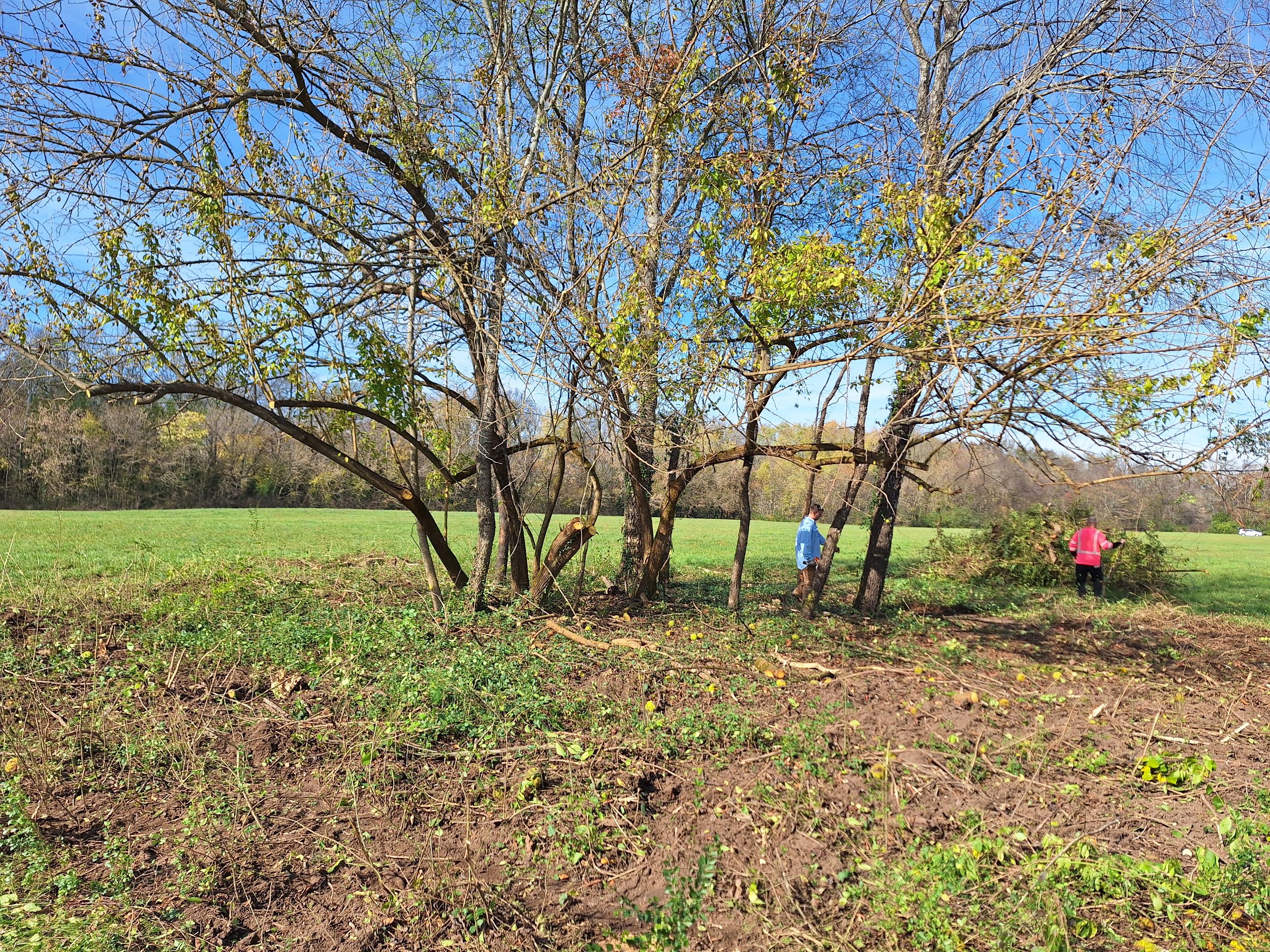
FiftyForward Martin Center
The Habitat Connection worked with the Leadership Brentwood team to design a bird sanctuary at the Brentwood FiftyForward Martin Senior Center. Our volunteers assisted in the selection of native plants, bird feeders and water source for the project; and assisted with the planting and implementation.
Historic Grassmere Farm
The Habitat Connection worked with the Nashville Zoo aviary staff to certify the Historic Grassmere Farm as a bird sanctuary. We also participated in their pollinator celebration event.
Millgate Meadow Project
In the spring of 2020, The Habitat Connection proposed a project to the Millgate Board that would restore the common area at the south end of the Millgate property in Franklin, TN, into a meadow with native grasses and wildflowers. This project has the potential to become an oasis of biodiversity in an otherwise mowed monoculture landscape. The meadow project will not increase HOA fees or operating expenses (project costs will be from donations to The Habitat Connection). In the long term, it will cost less to maintain (less mowing expense) while providing critical wildlife habitat, which can enhance the area for all residents (both wildlife and humans).
To (a) reduce maintenance costs of repeated mowing and (b) transition to a native plant ecosystem, the meadow was not mowed during 2020. Numerous test plots of mixed wildflowers were planted in the meadow to determine if wildflowers would thrive. The test plots did very well - confirming that wildflowers will do well in the meadow. As the pandemic took hold, it was decided to install raised-bed gardens for Millgate residents to spend time outside, be active, and build community.
During 2021 and 2022, the meadow was mowed and sprayed several times (the area inside the walking path) to remove heavy infestations of Bermuda grass, crabgrass, and other invasive weedy species. In November 2022, a native seed mix from Roundstone Seed was planted.
In the spring of 2023, we began seeing the results of the seeds planted last fall. Of the 20 different seed species in the mix, we identified 18 plants growing in the meadow by mid-summer. Some wildflowers that bloomed were an Indian blanket, black-eyed Susan, gray-headed coneflower, coreopsis, false sunflower, partridge pea, smooth aster, goldenrod, and purple and white prairie clover. Since the first blooming season, we have witnessed these species and more beautifying the meadow. We have also noticed more bird activity in the meadow – American goldfinch, song sparrow, mourning dove, field sparrow, and bluebird; and lots of pollinator activity (bees and butterflies).

